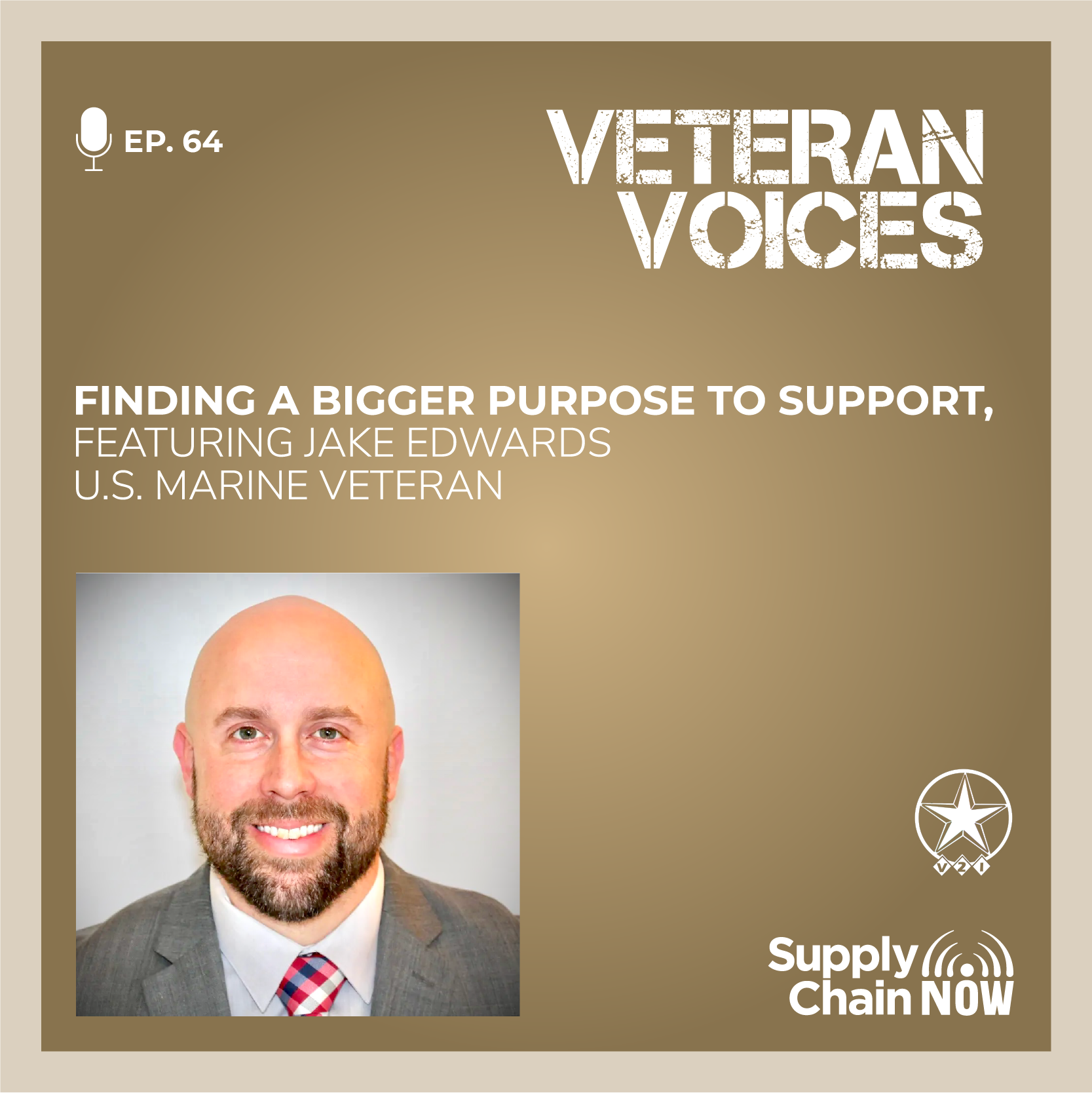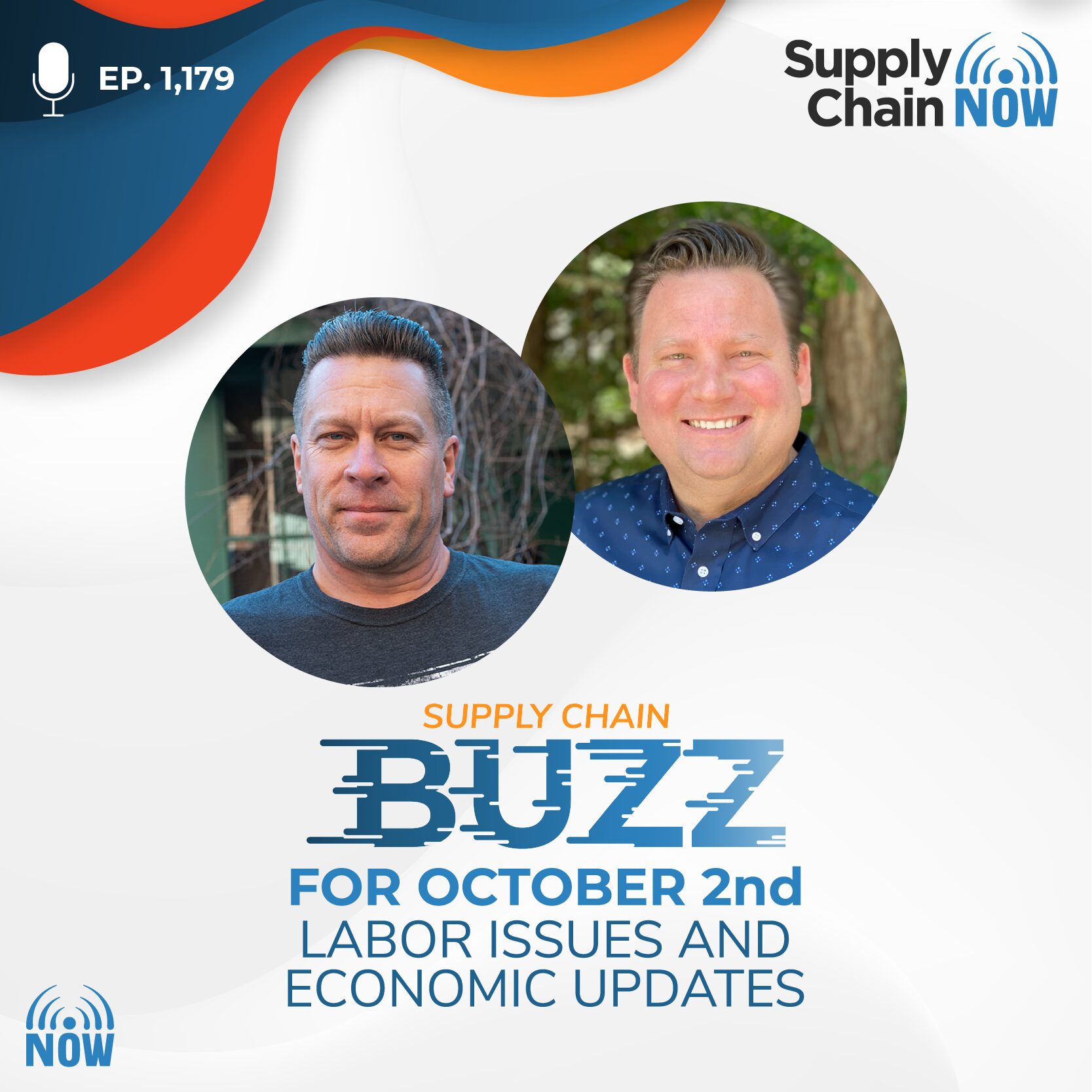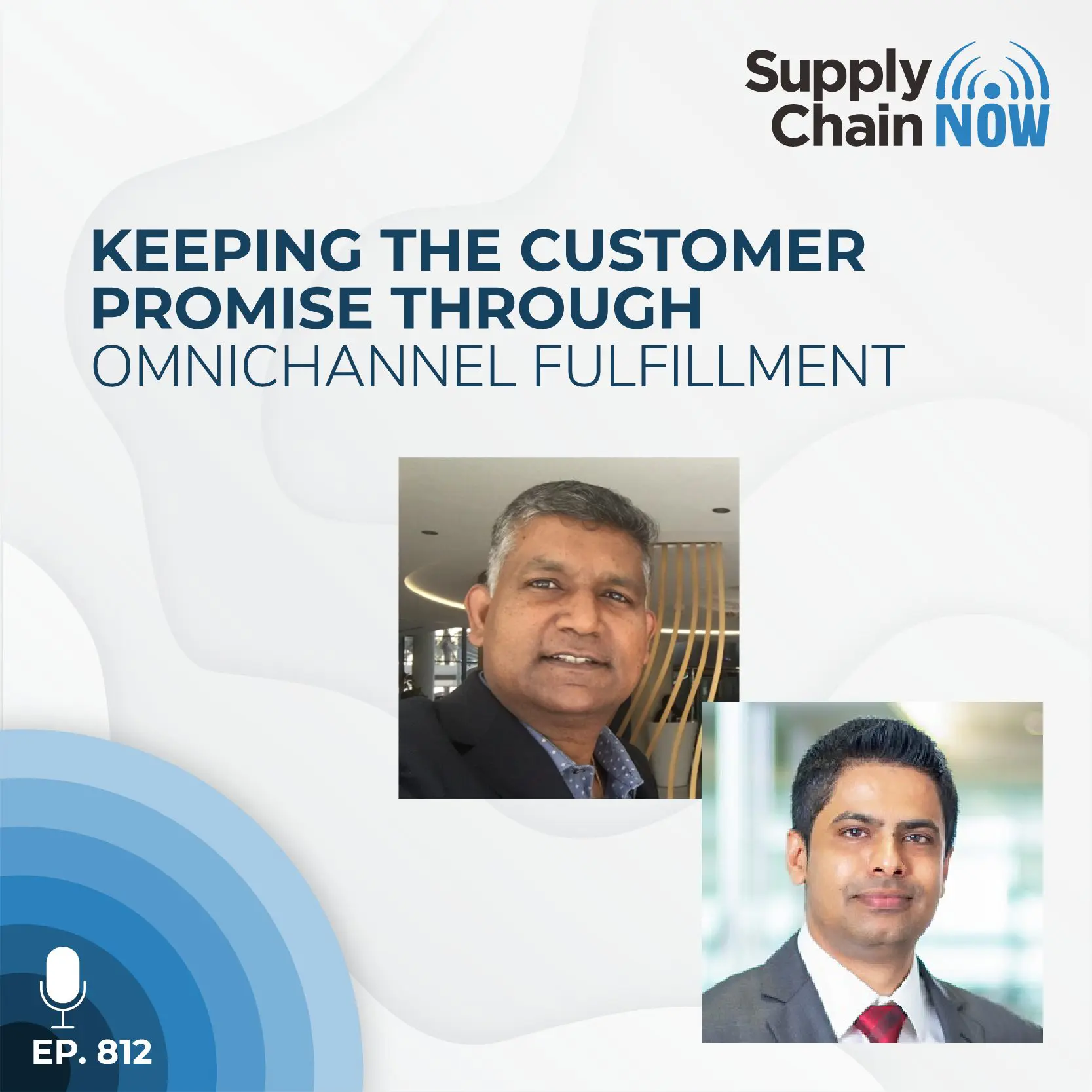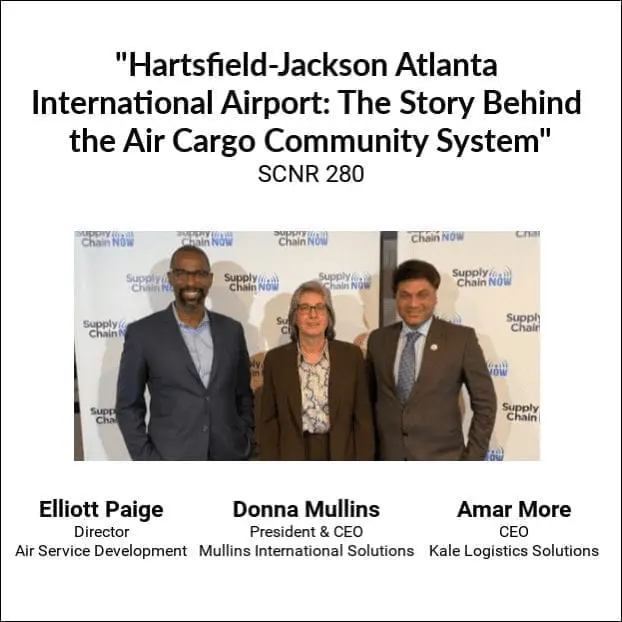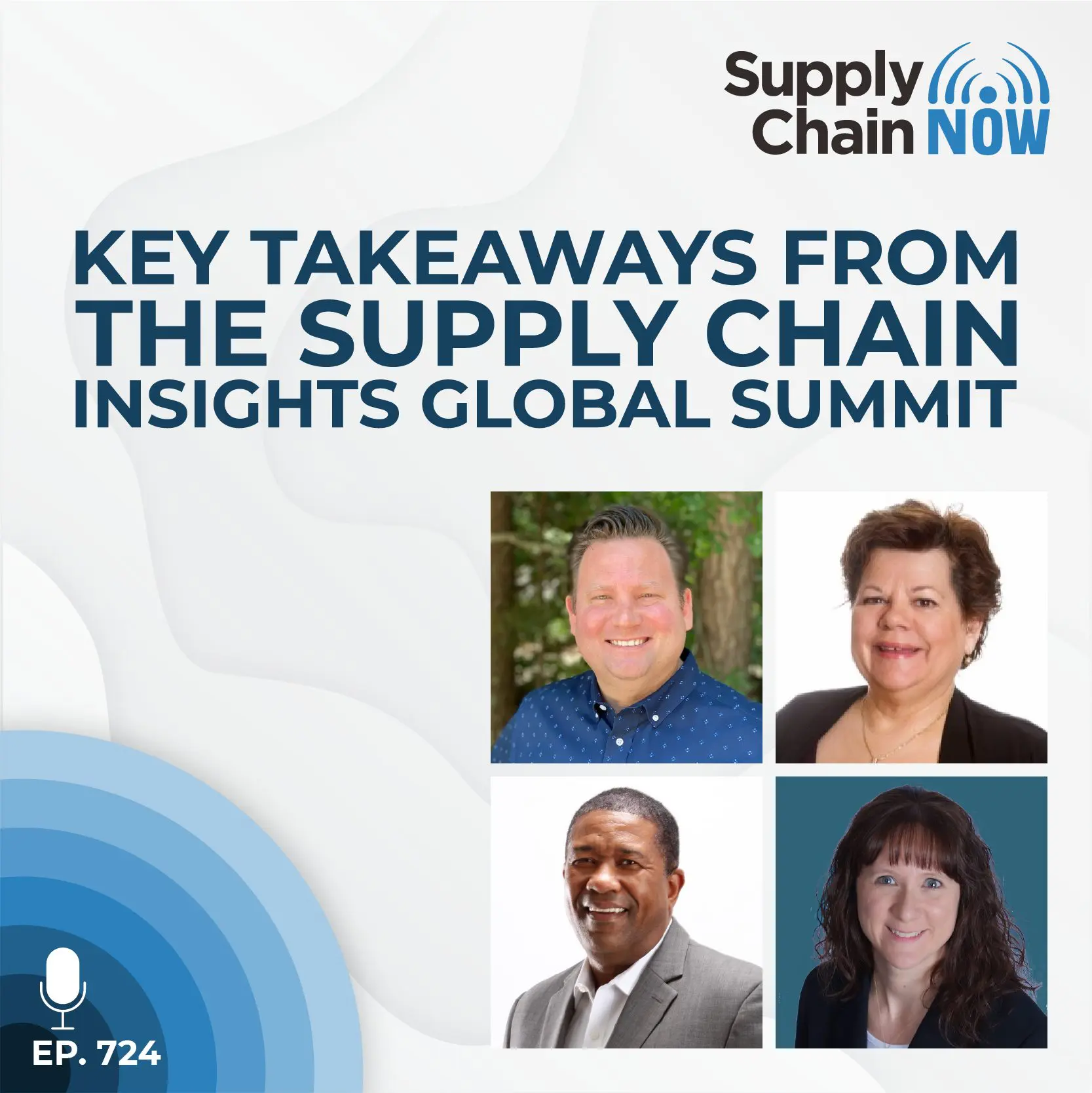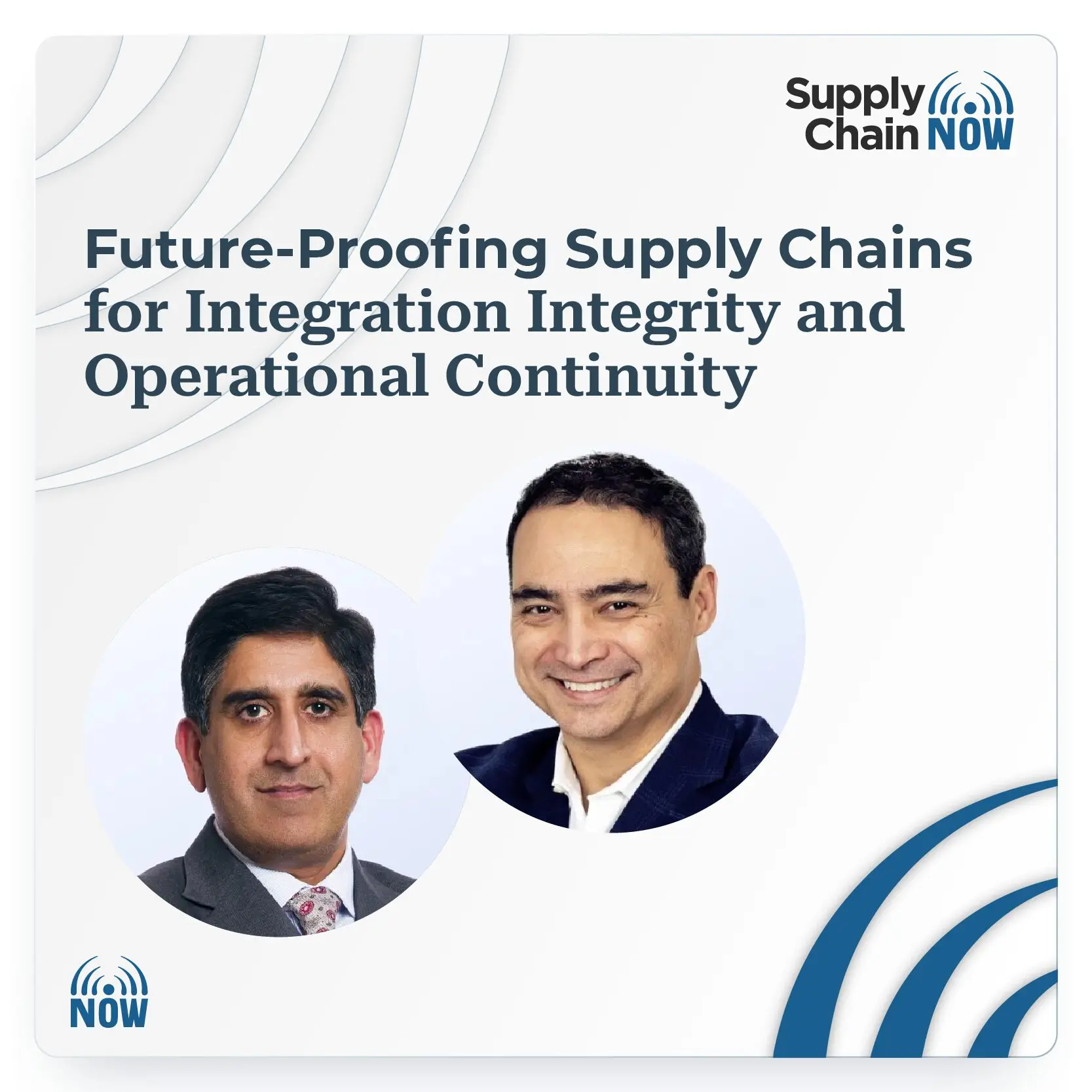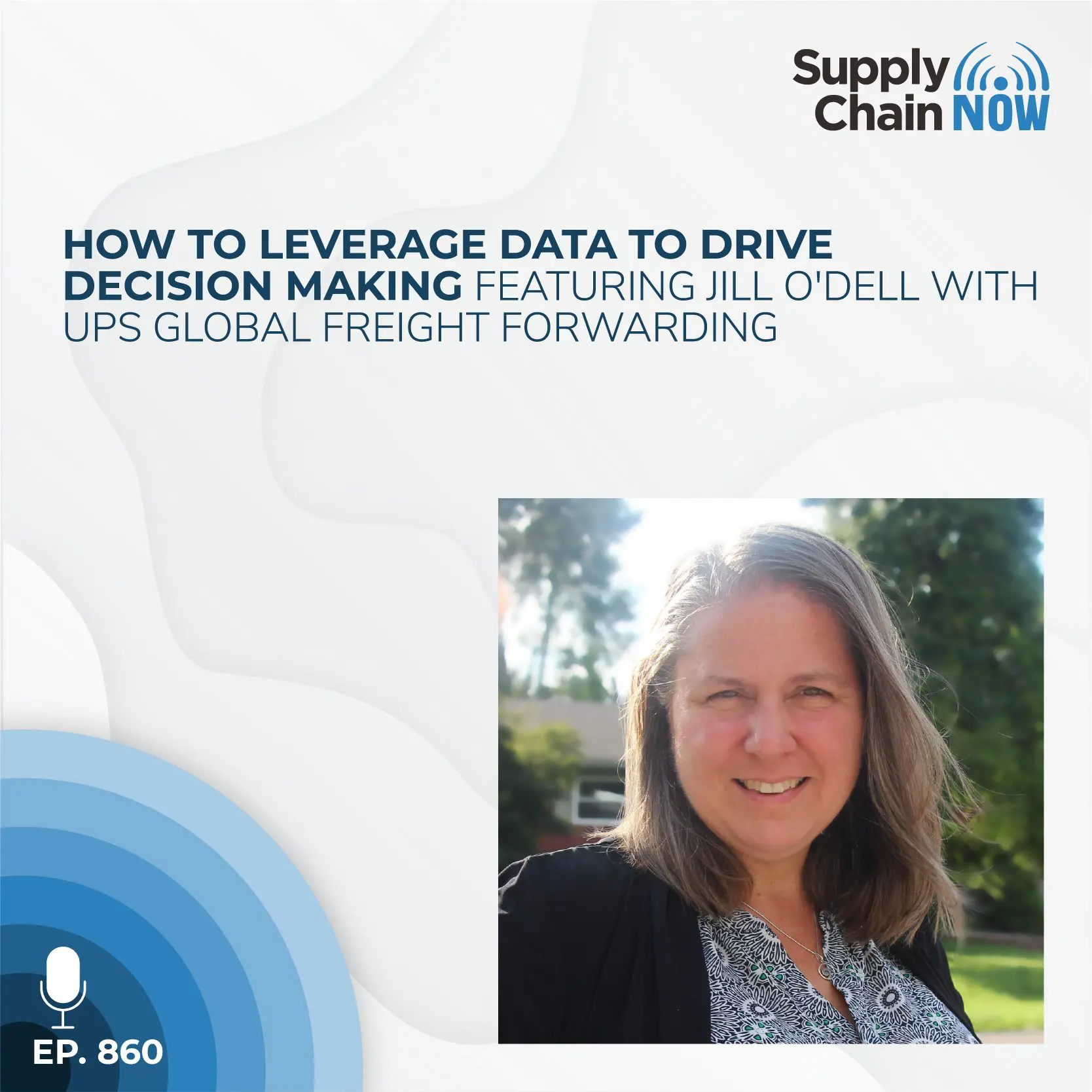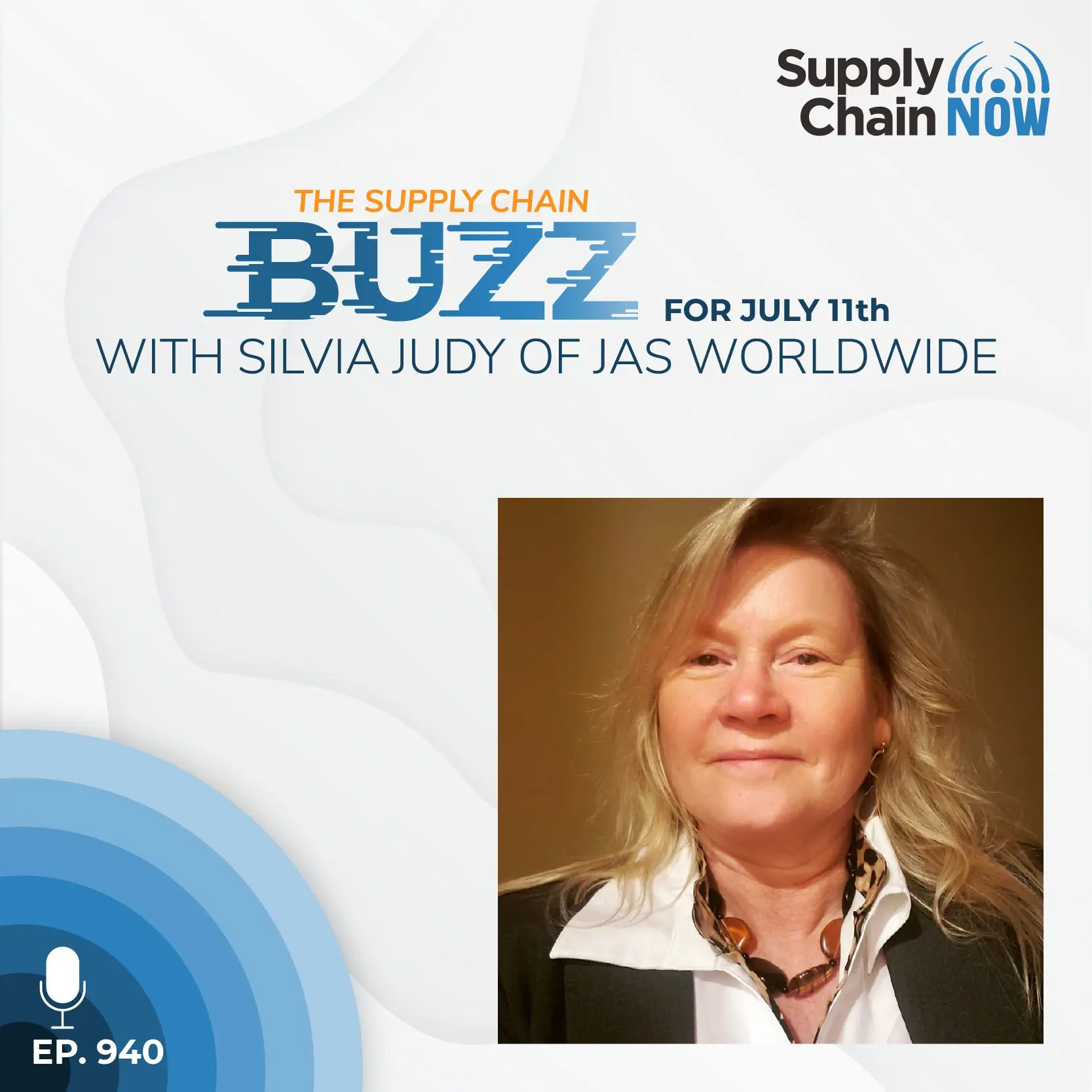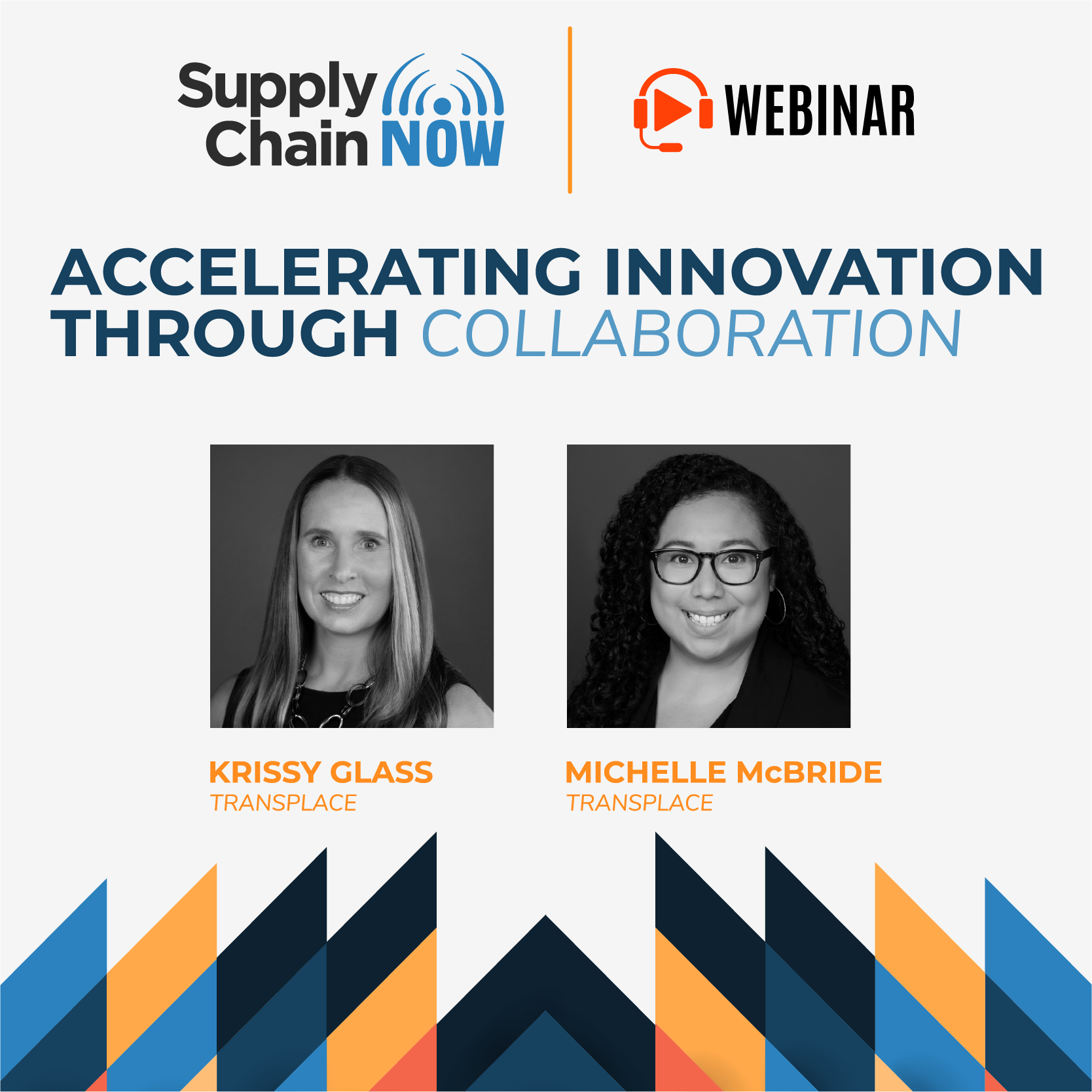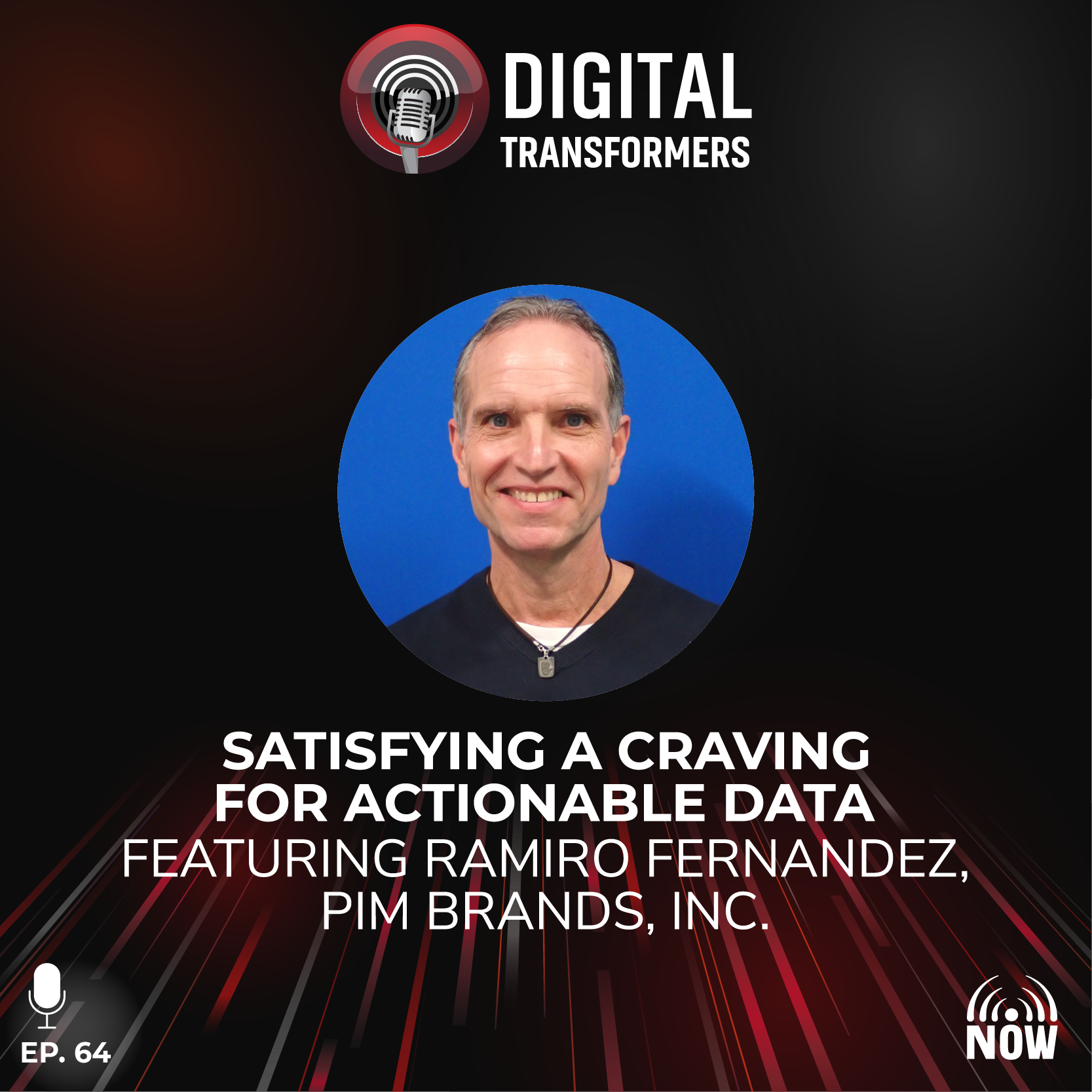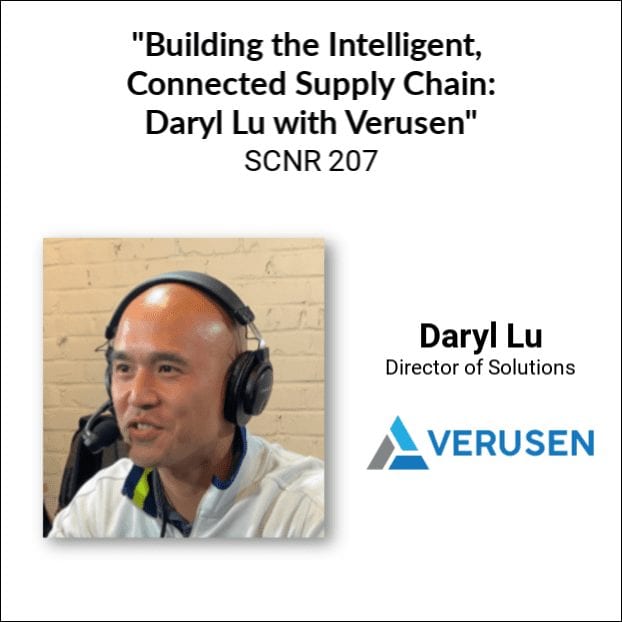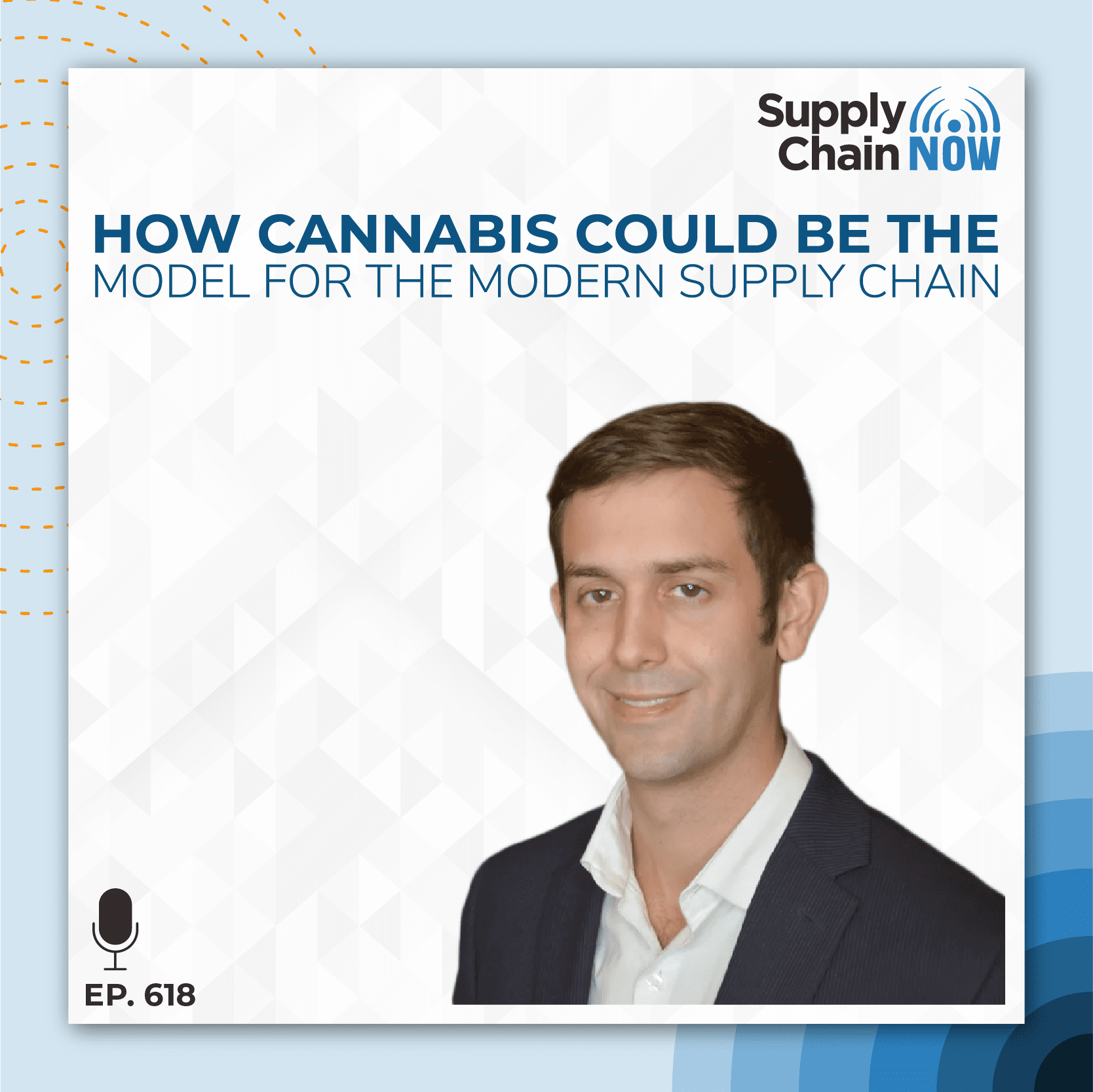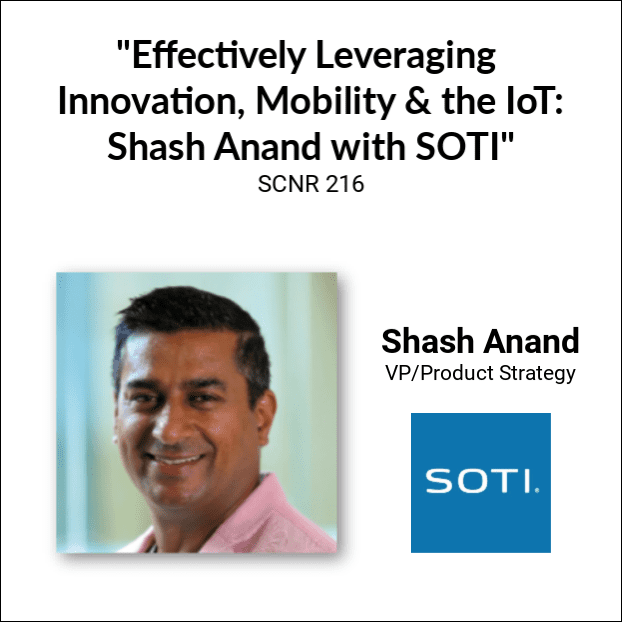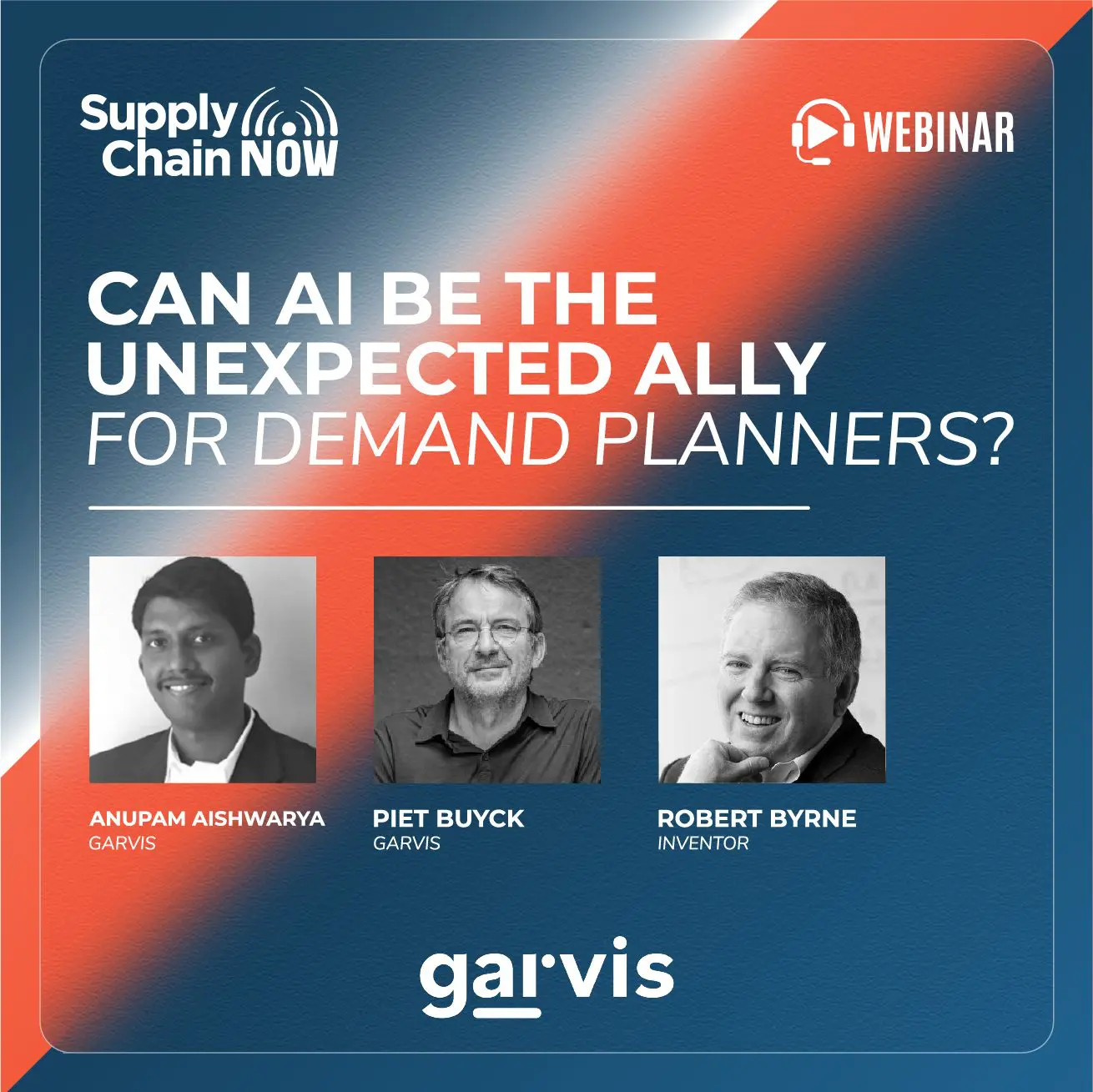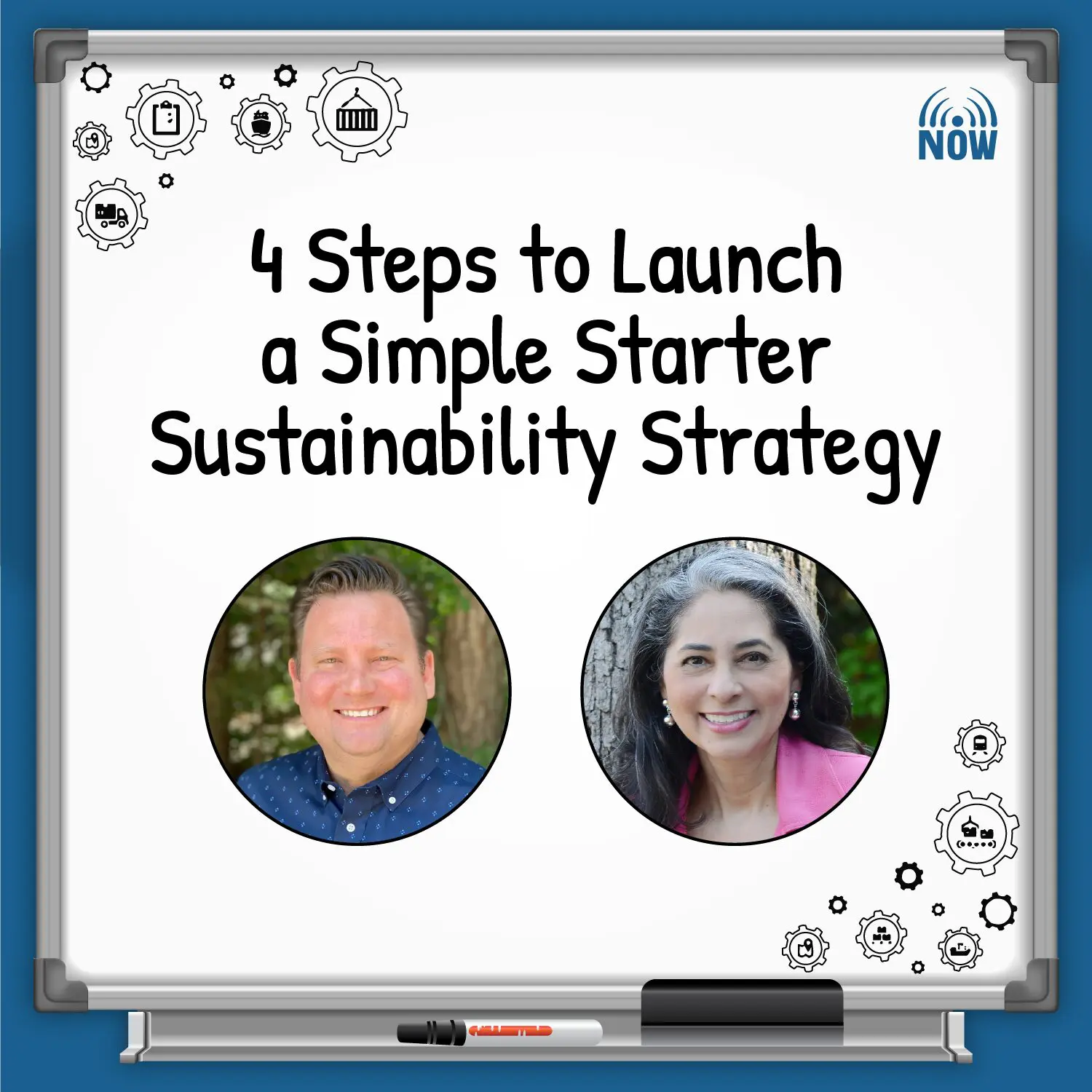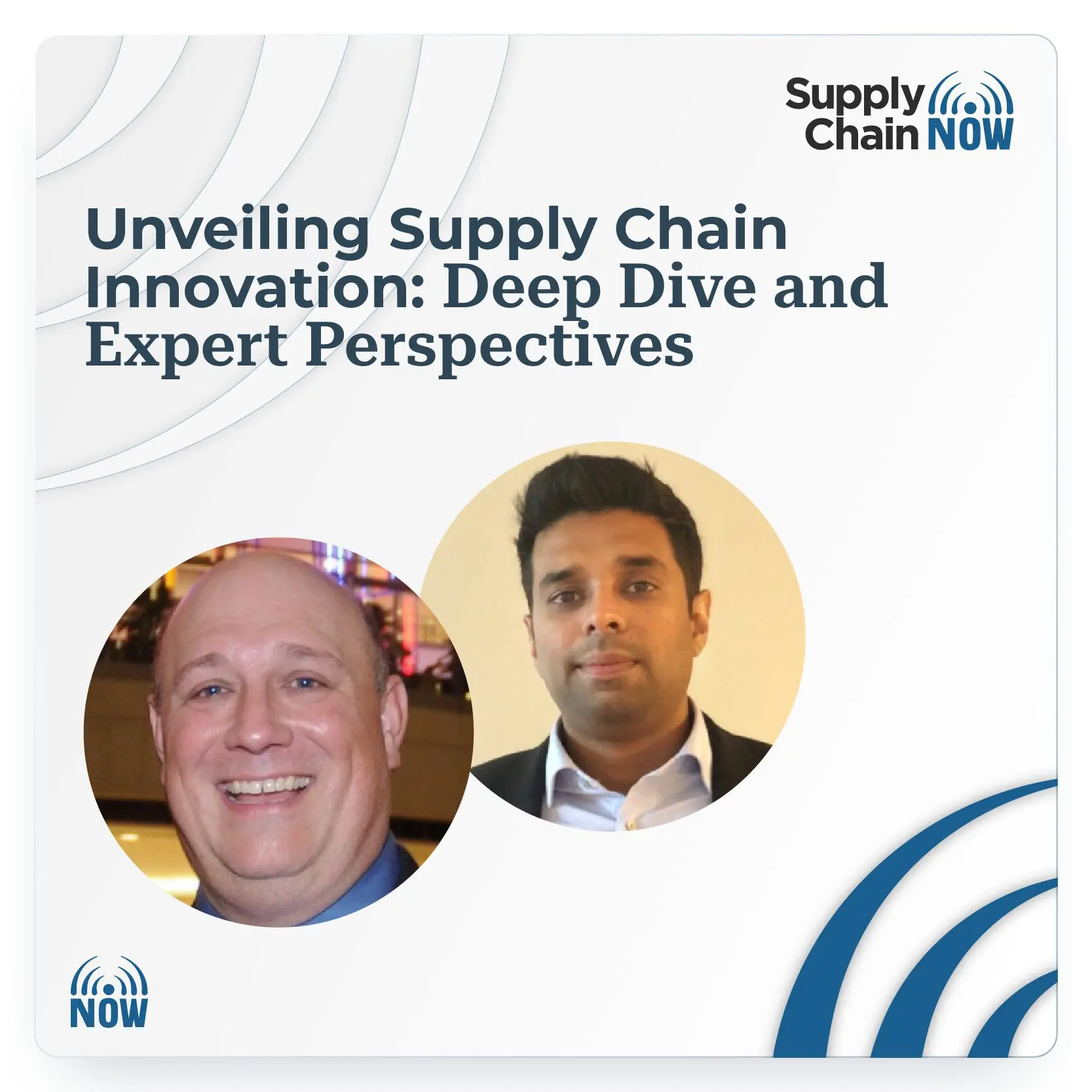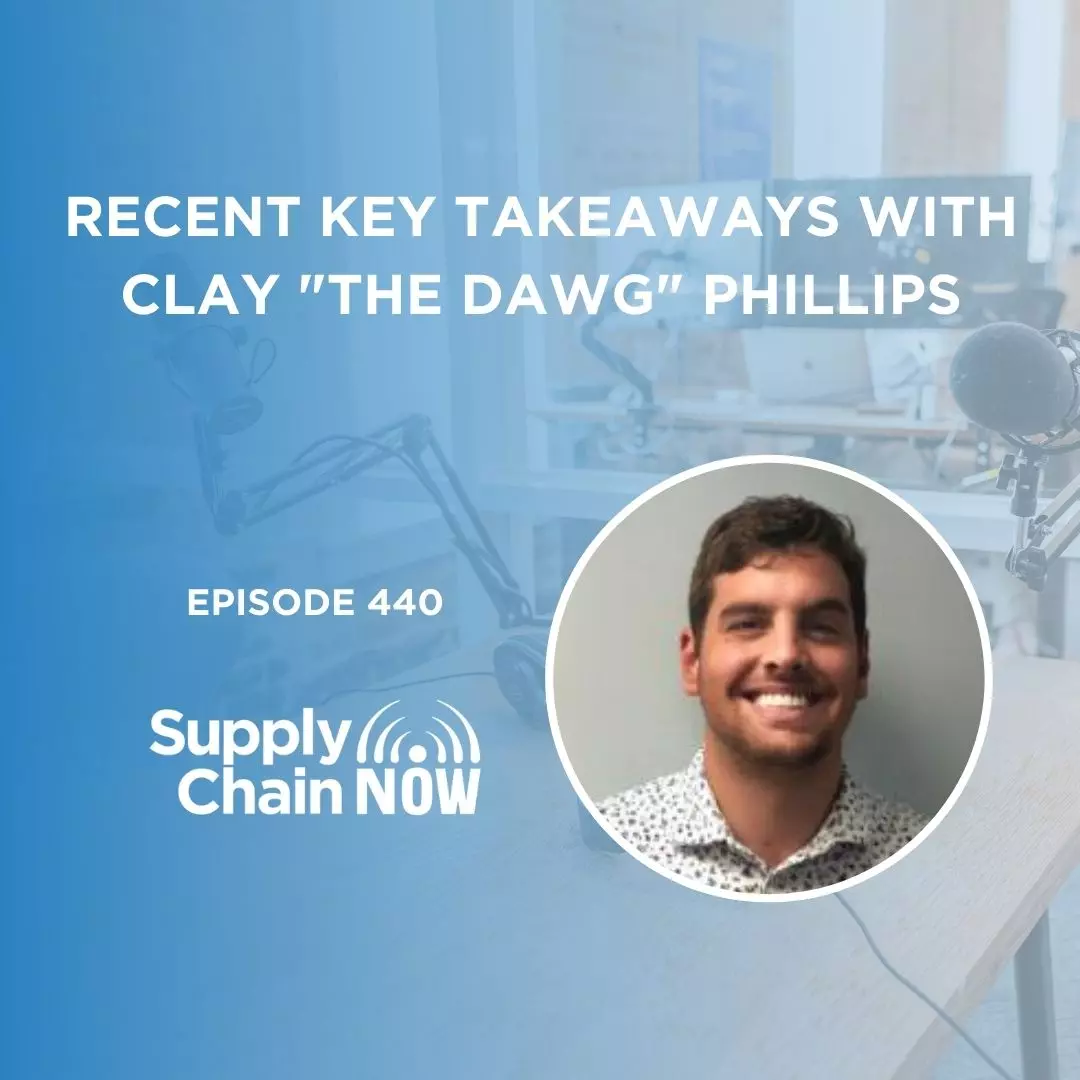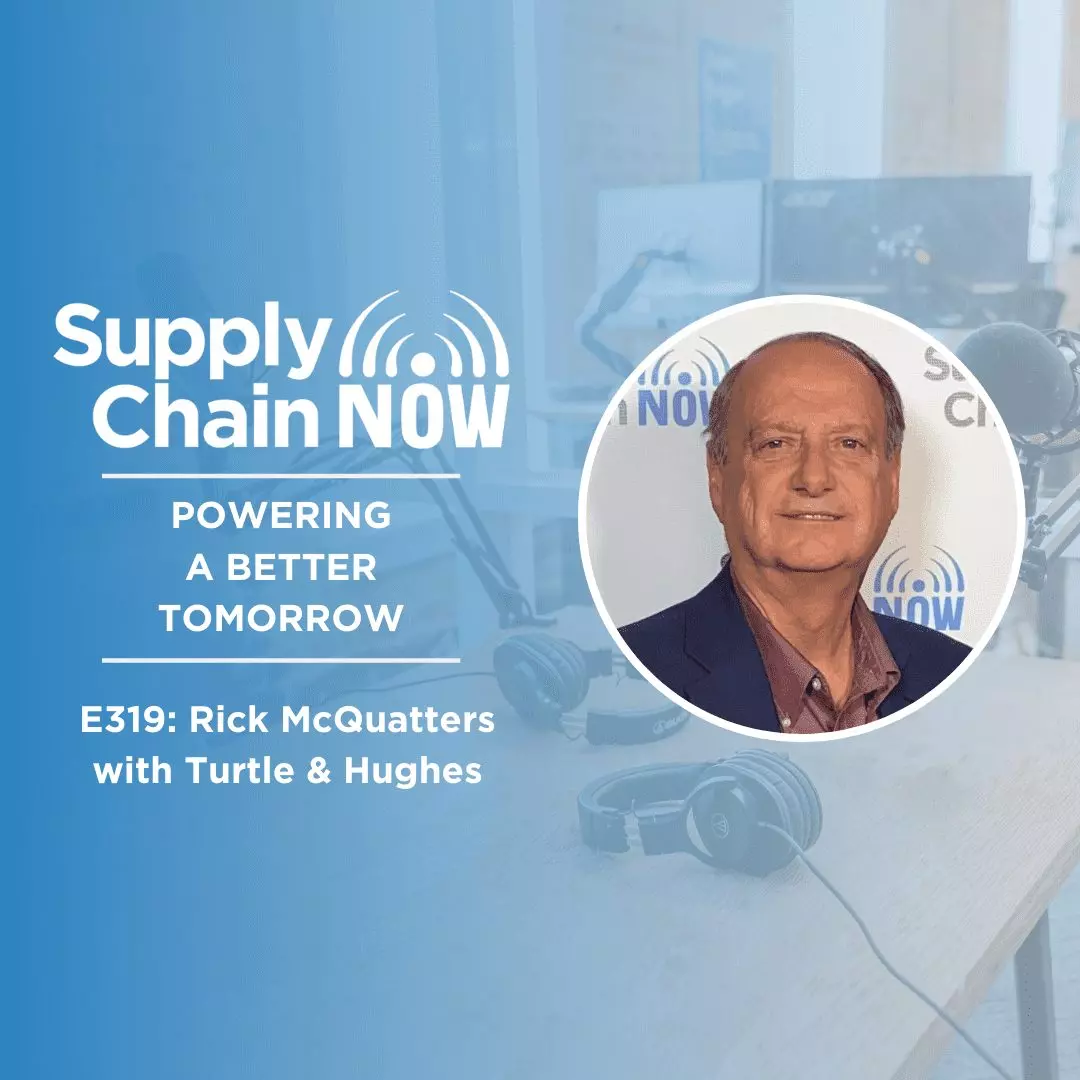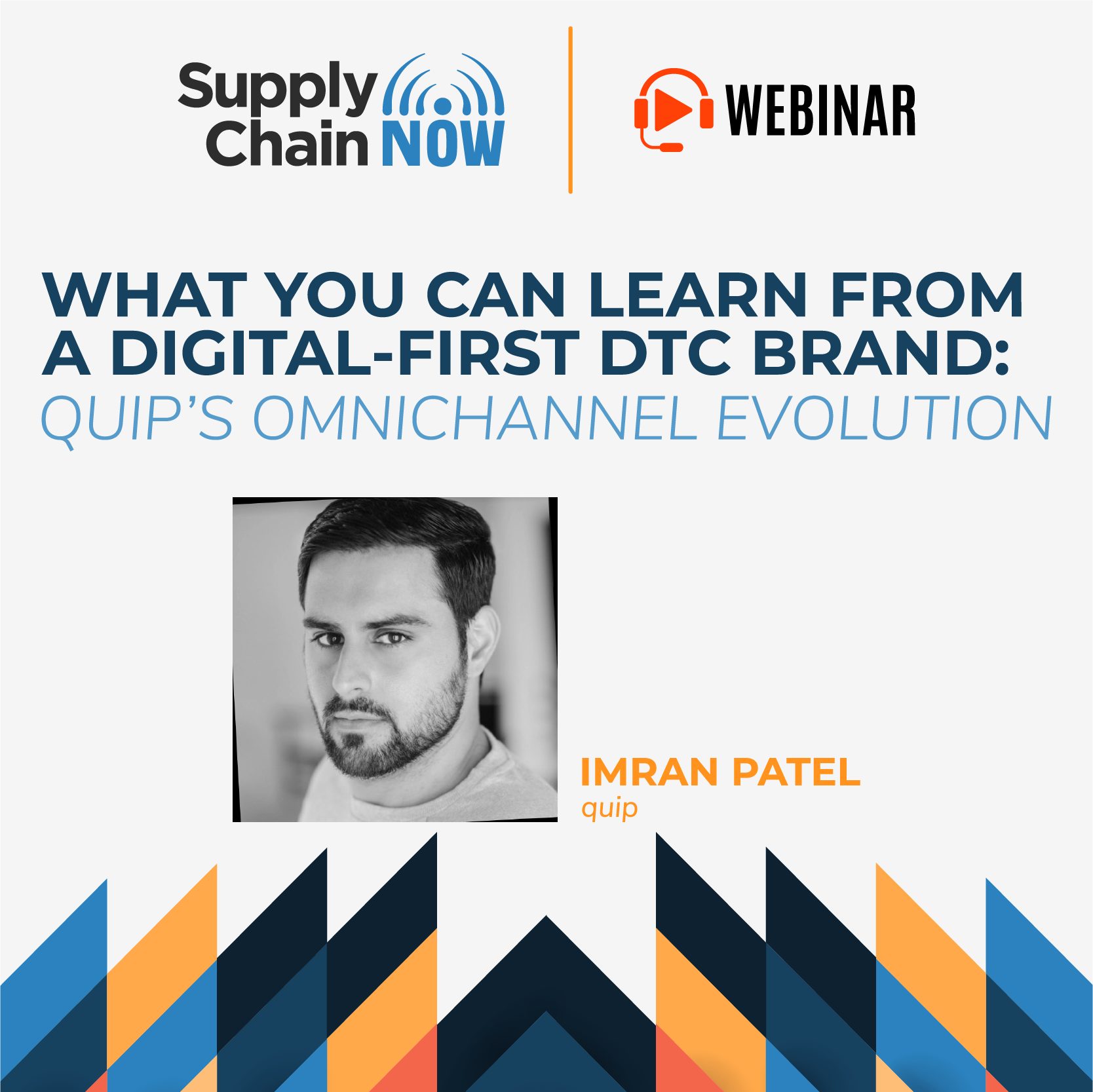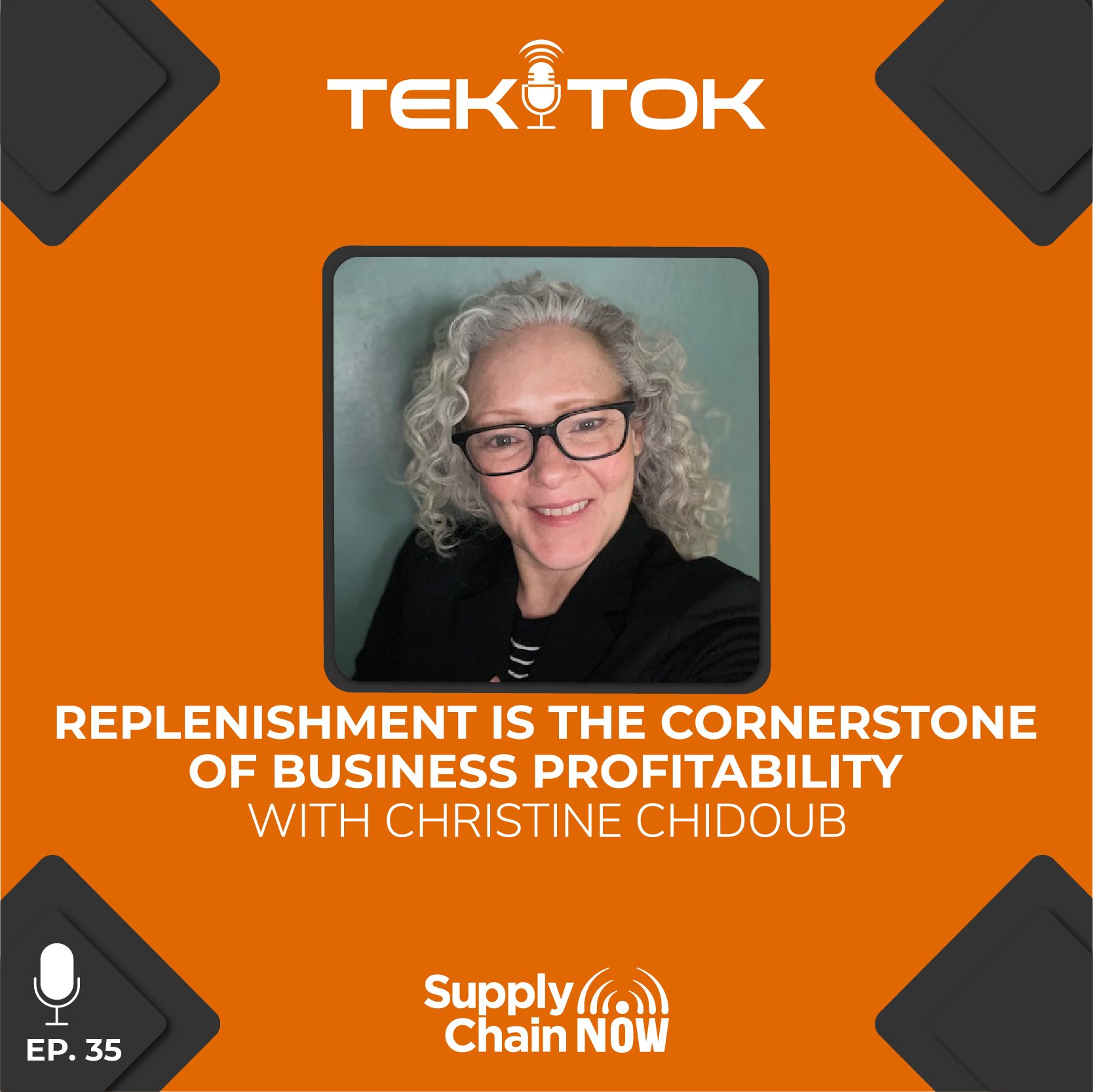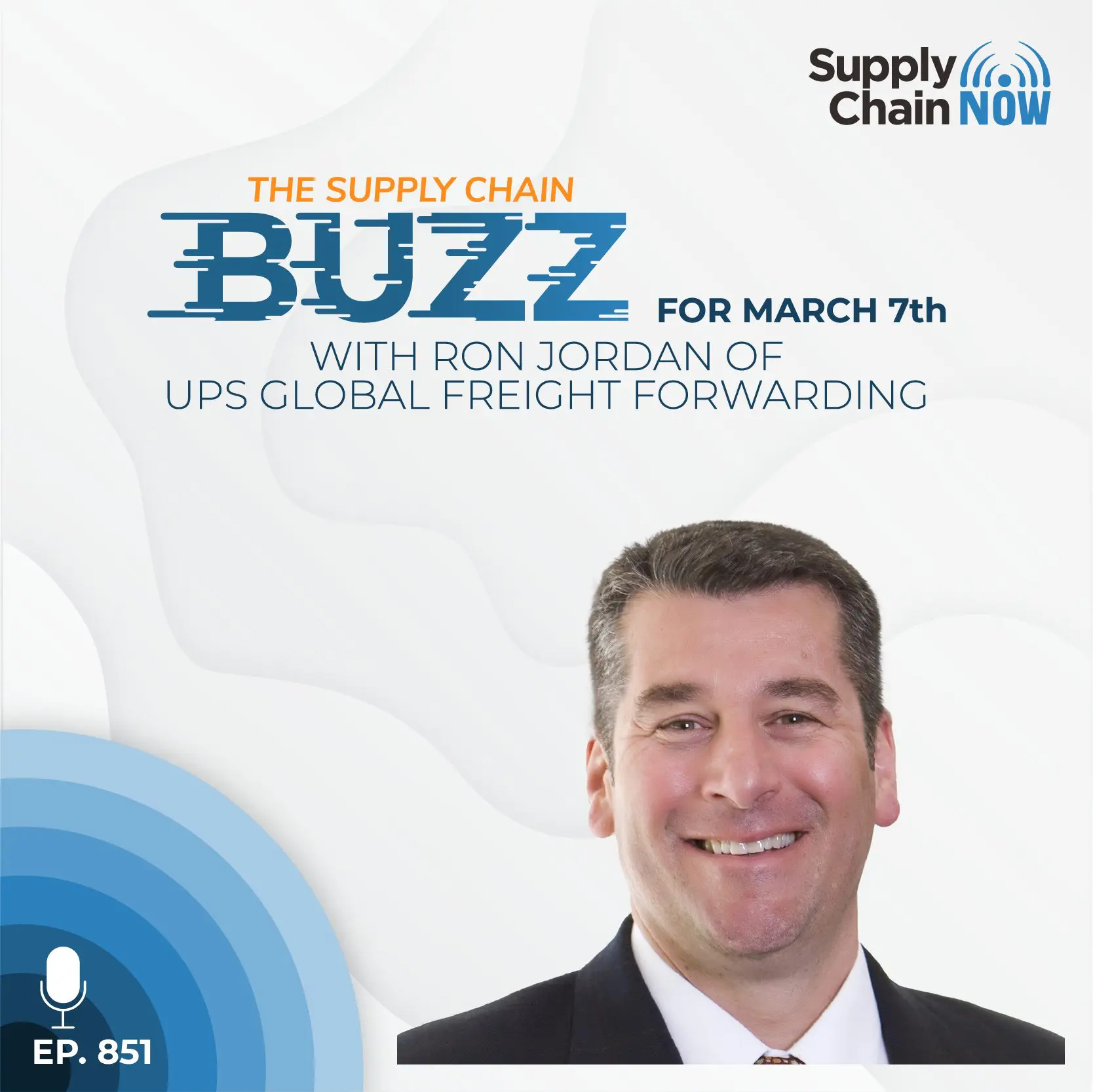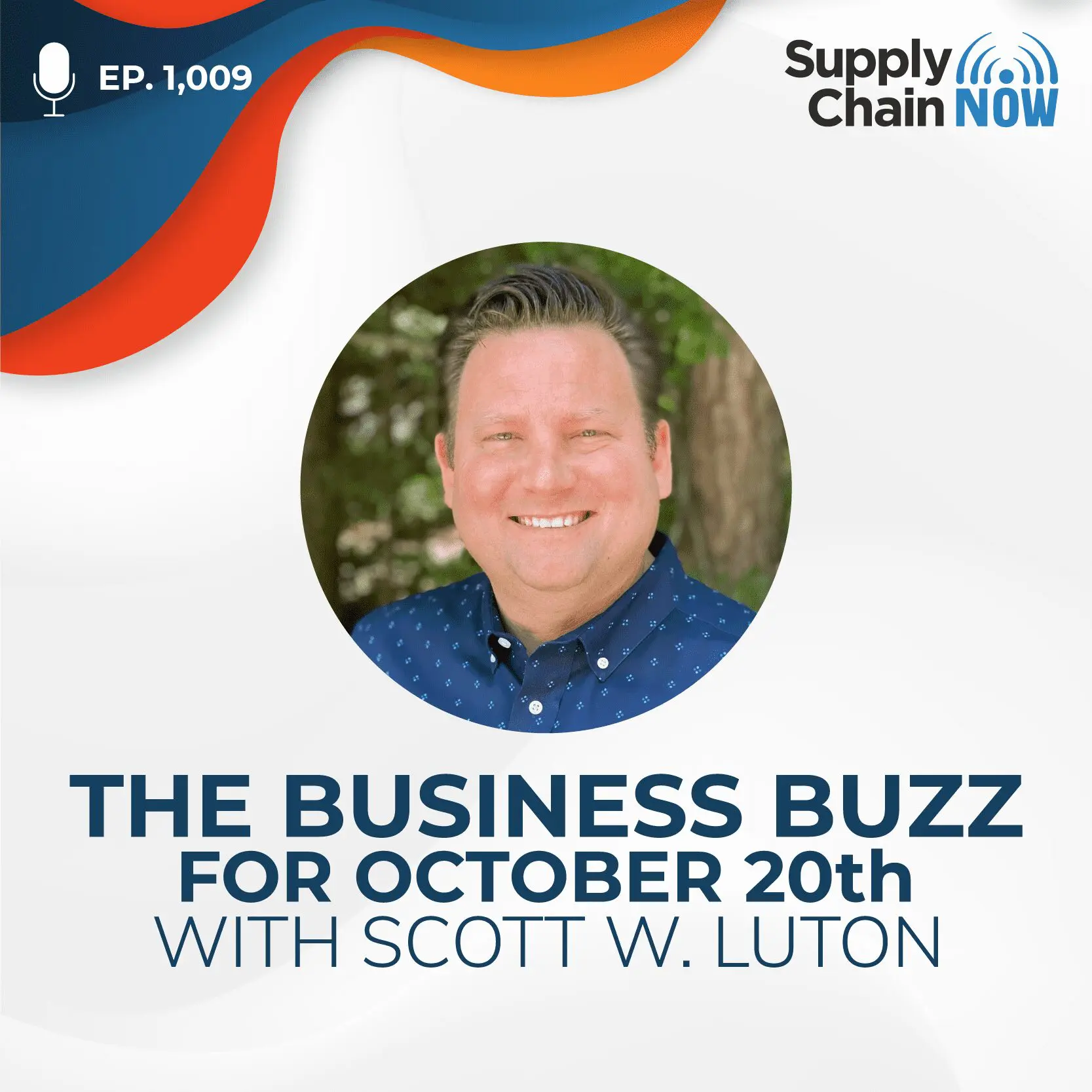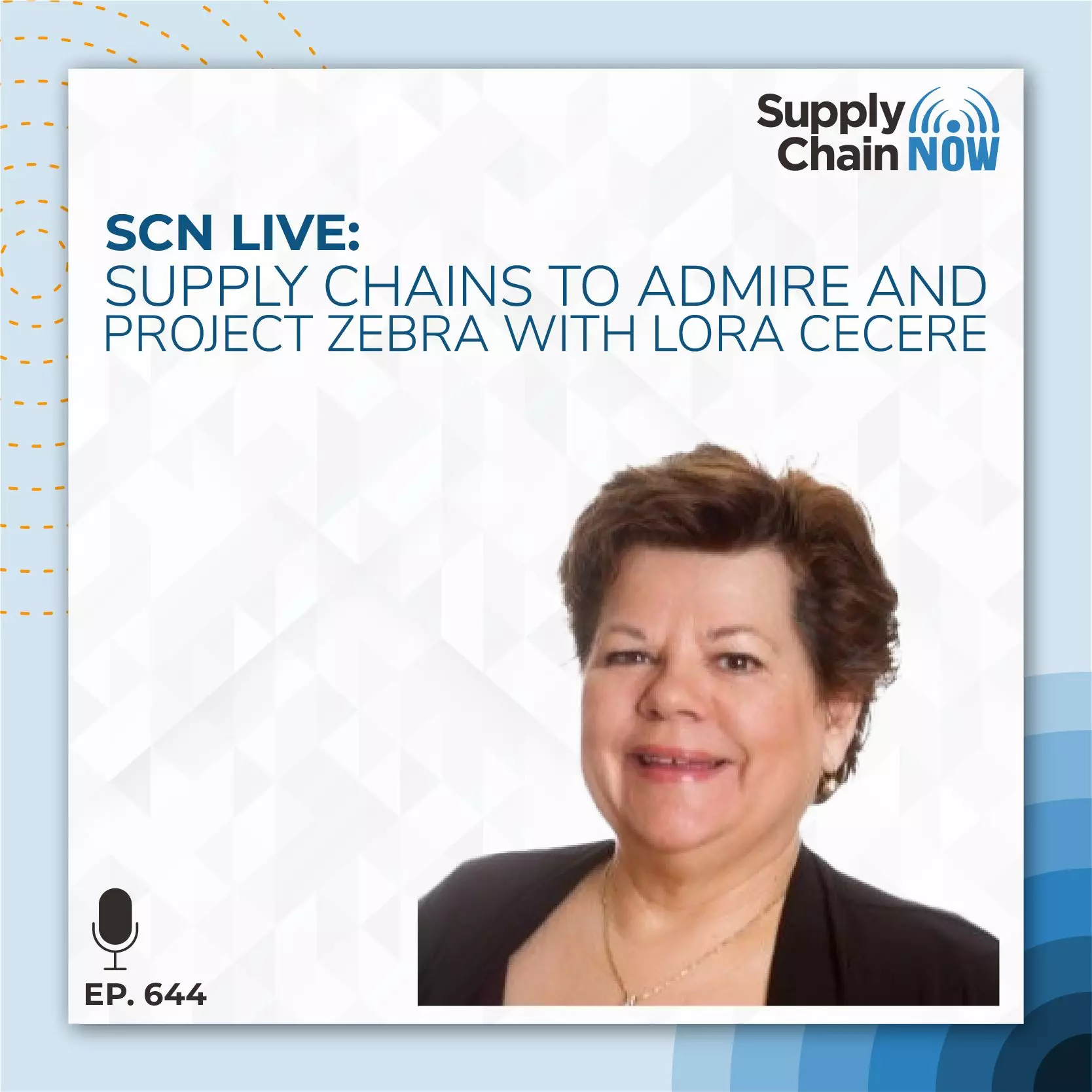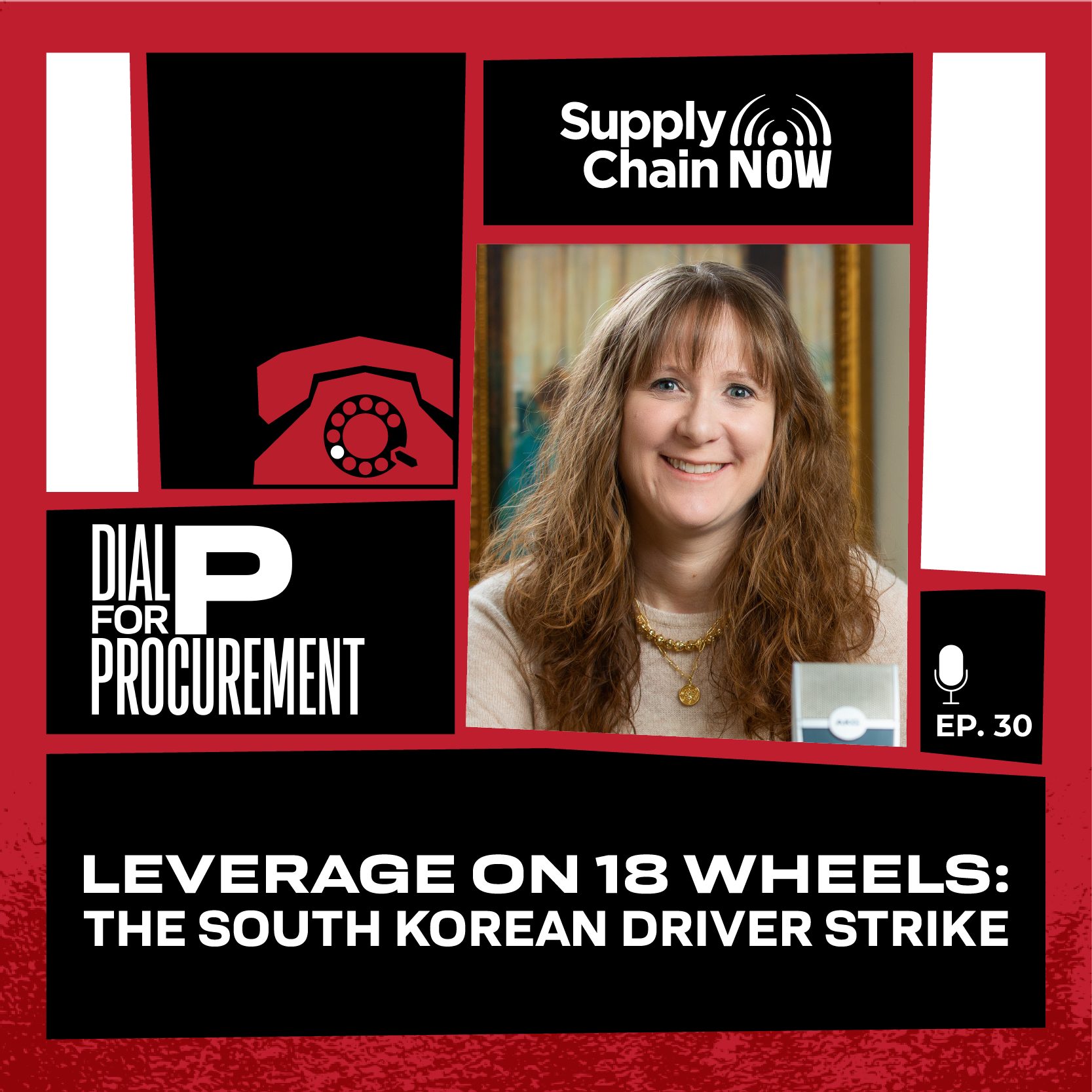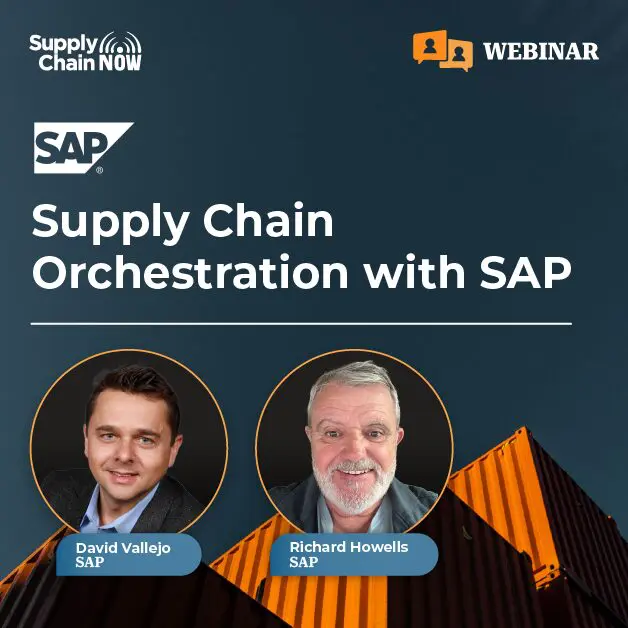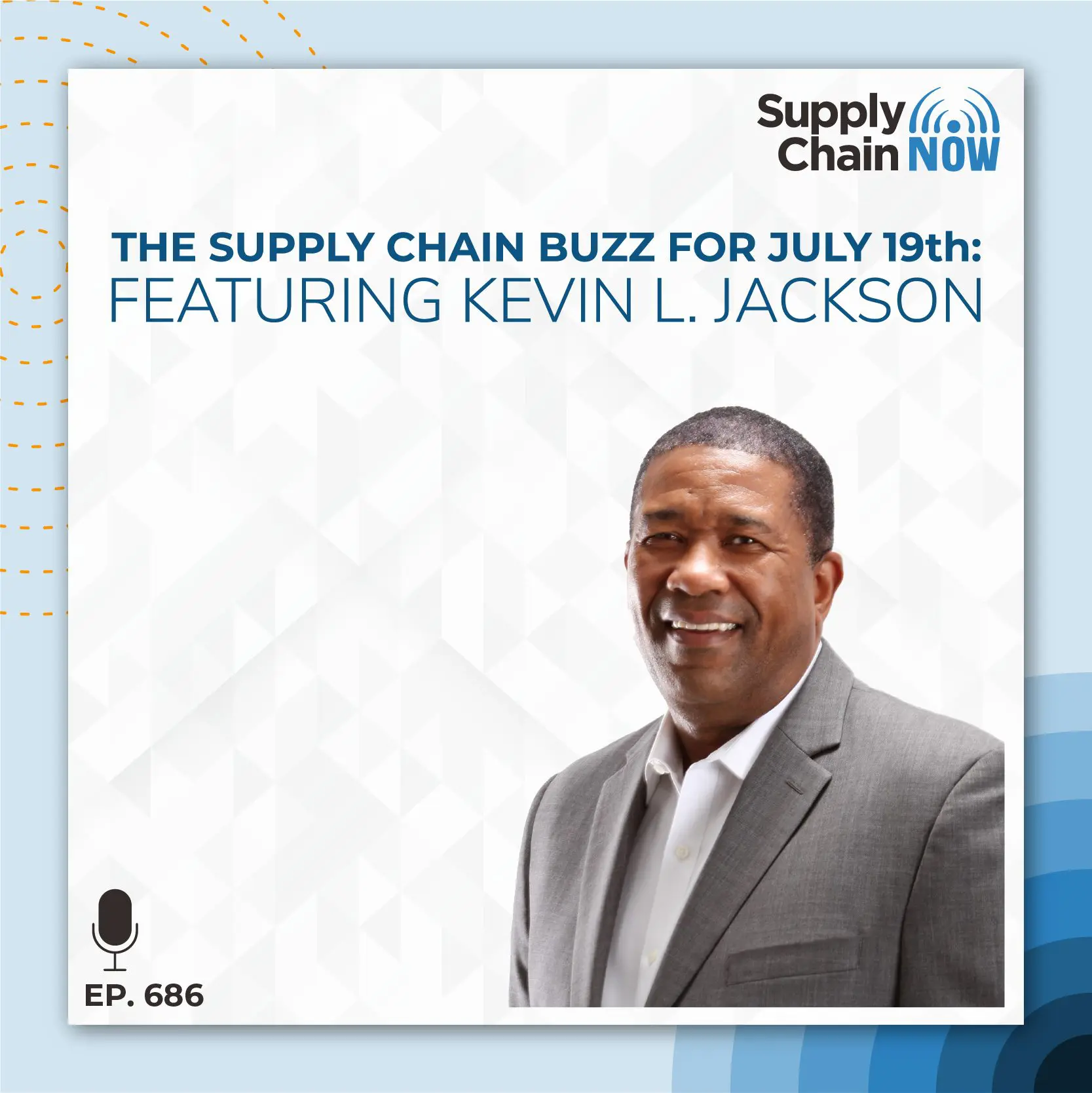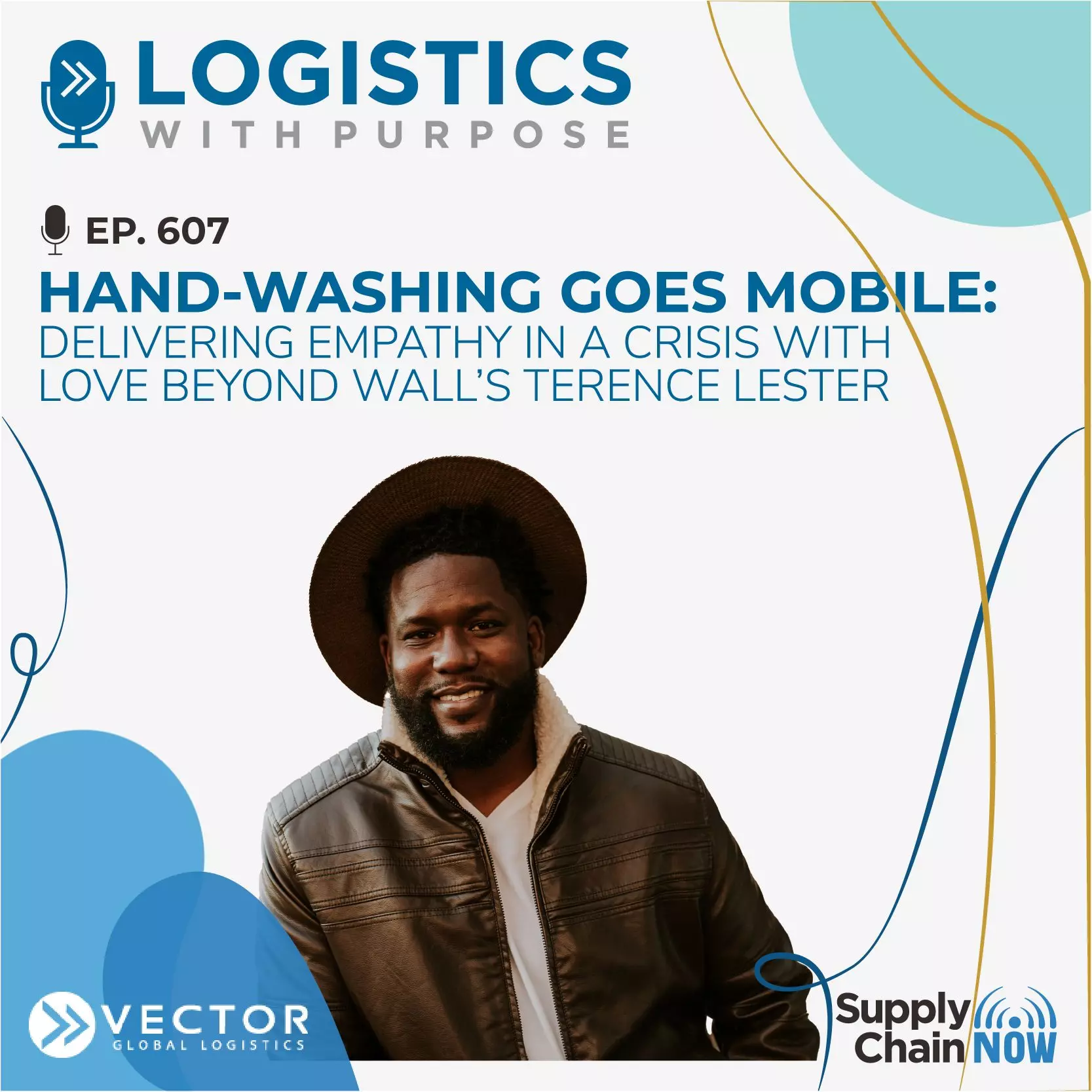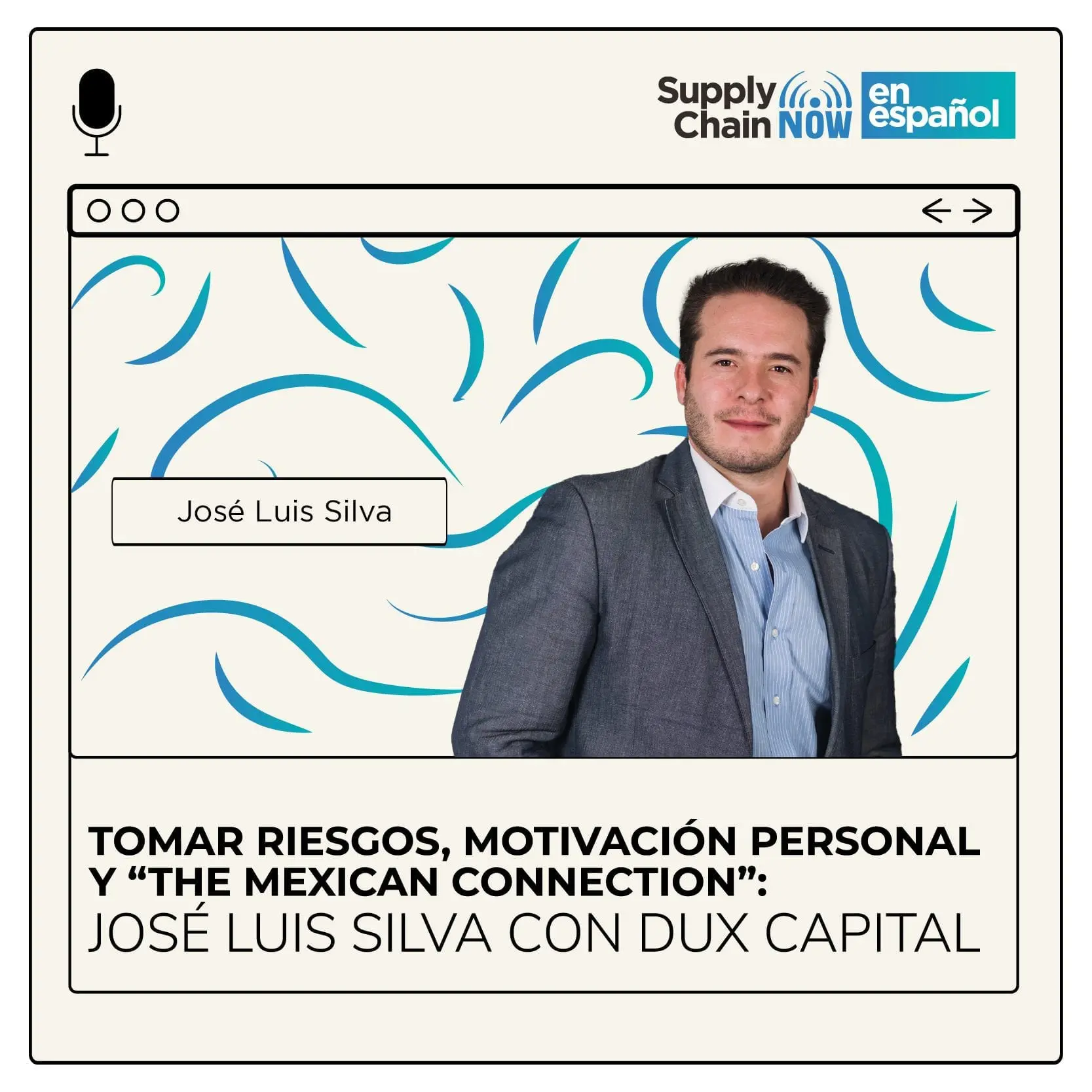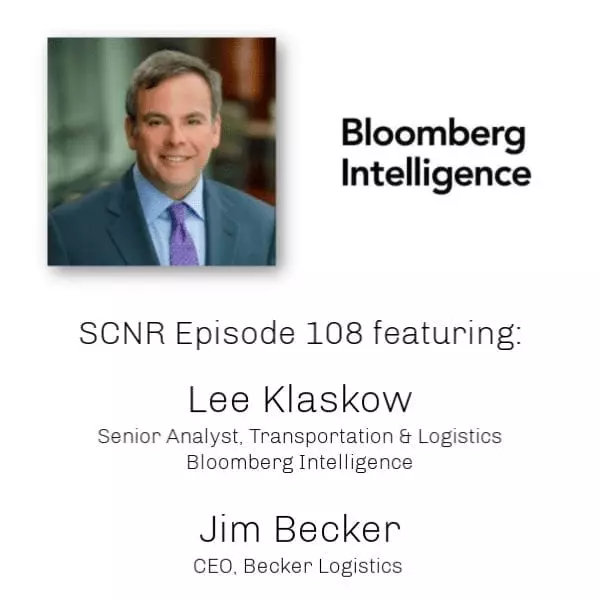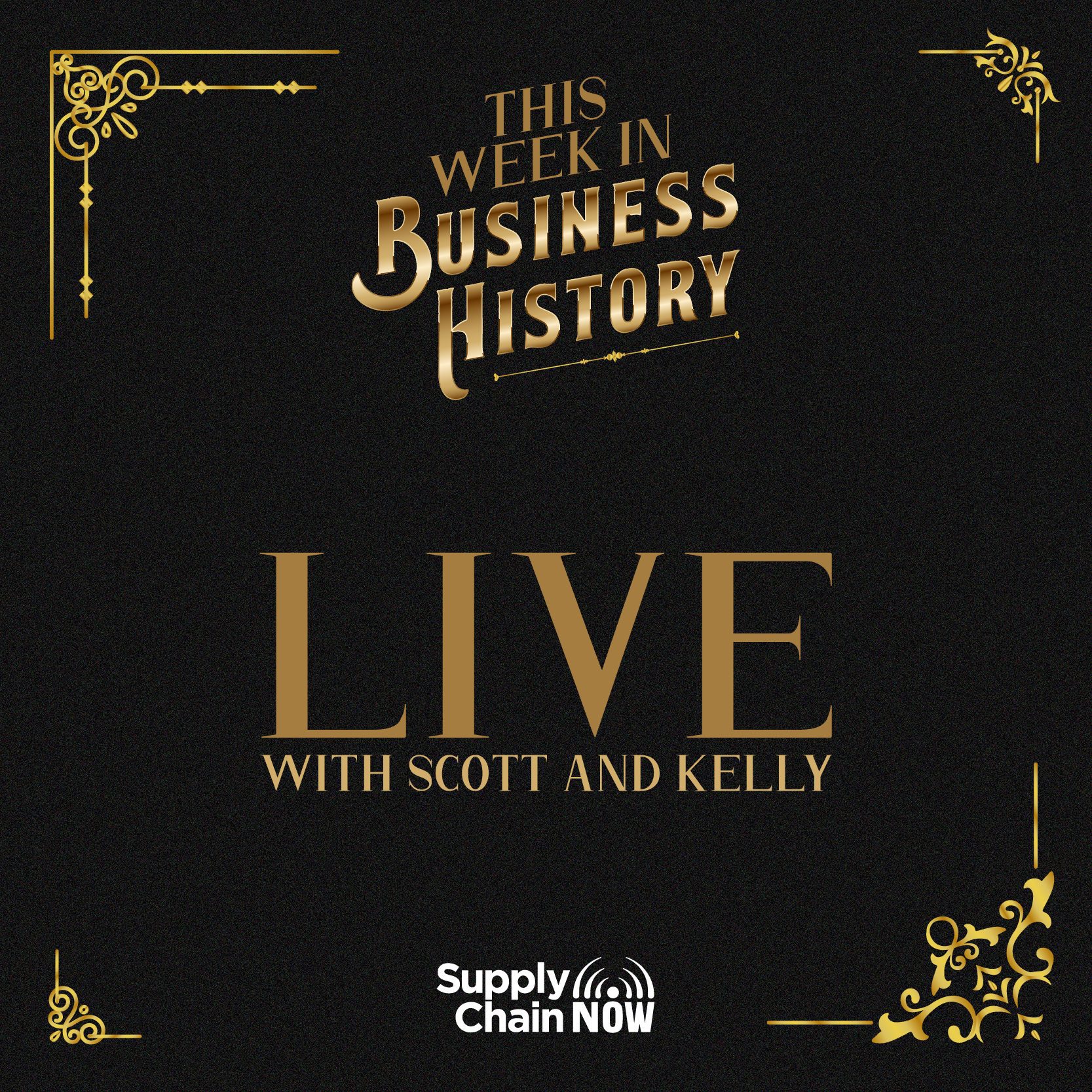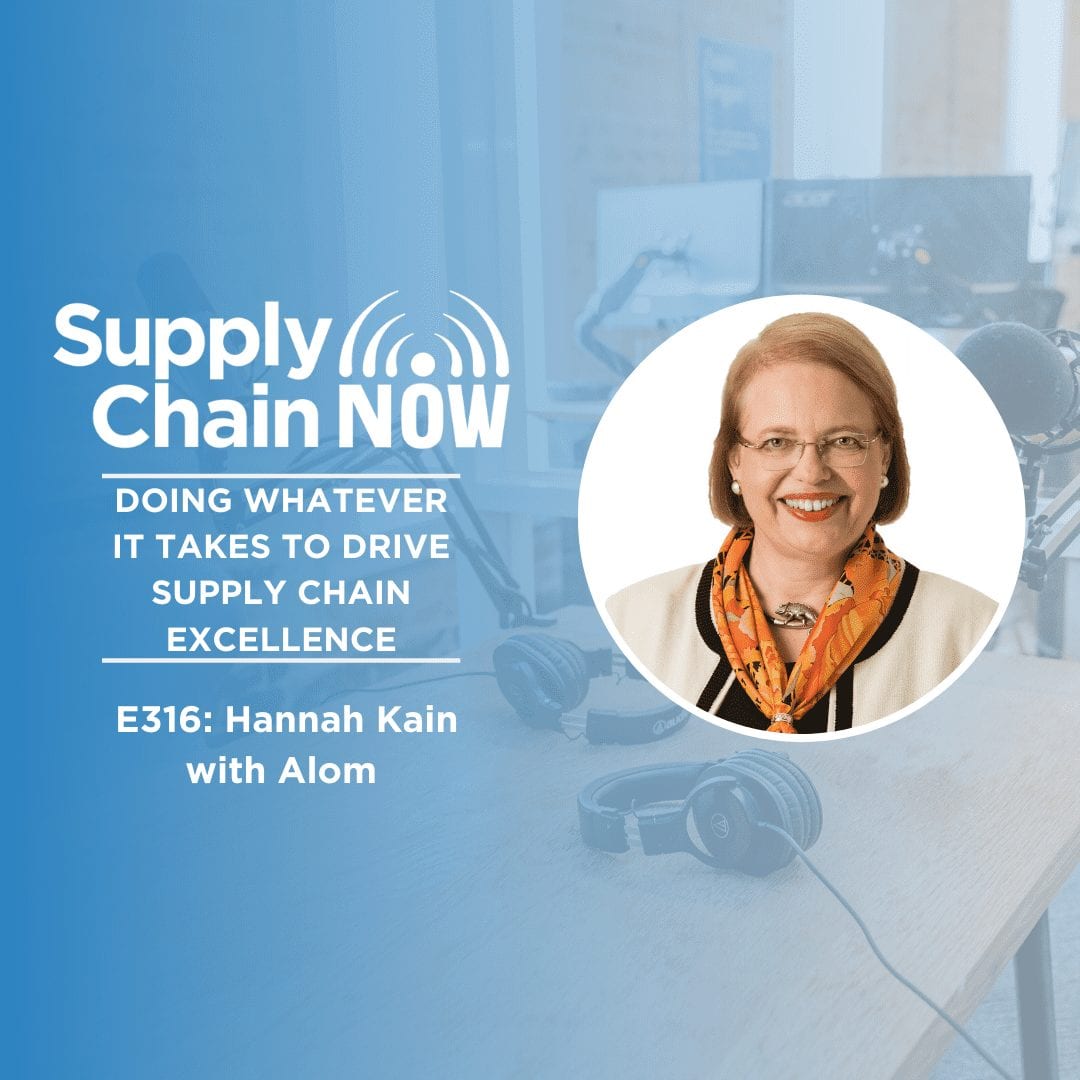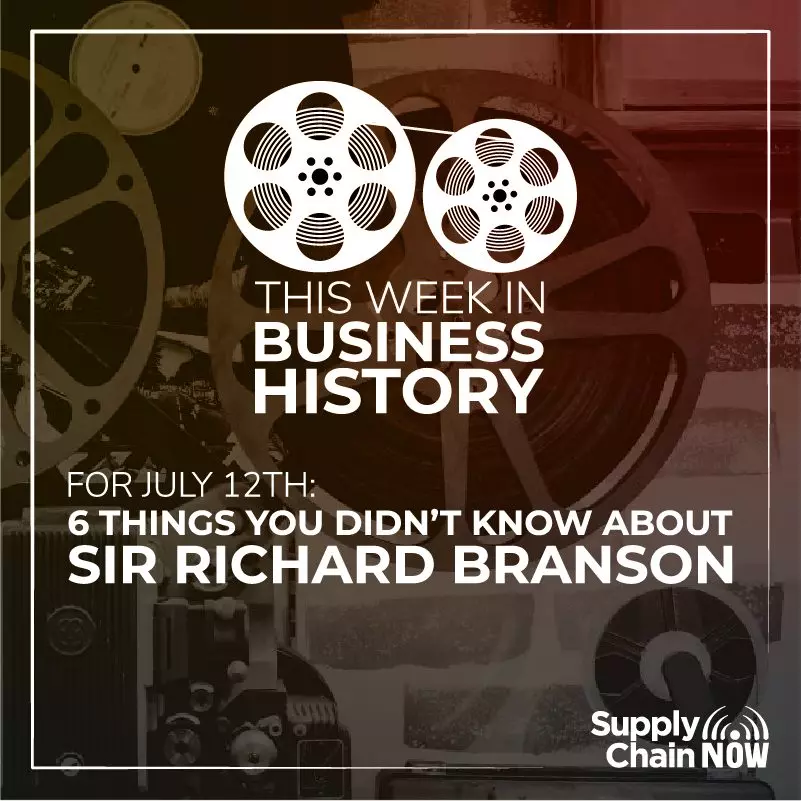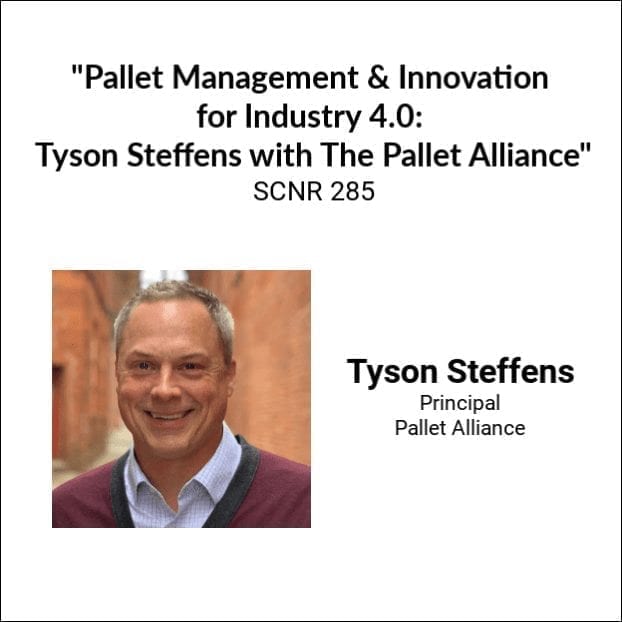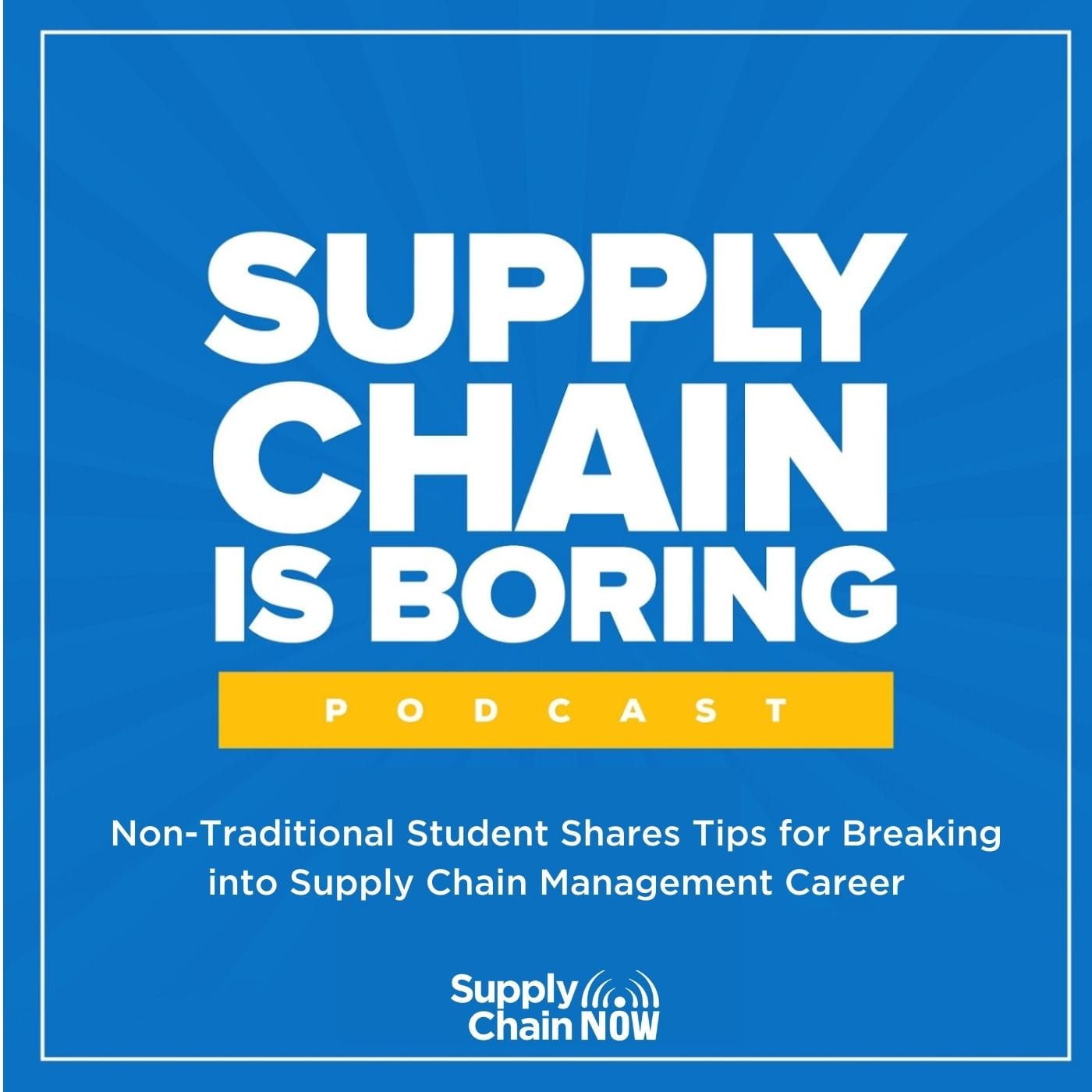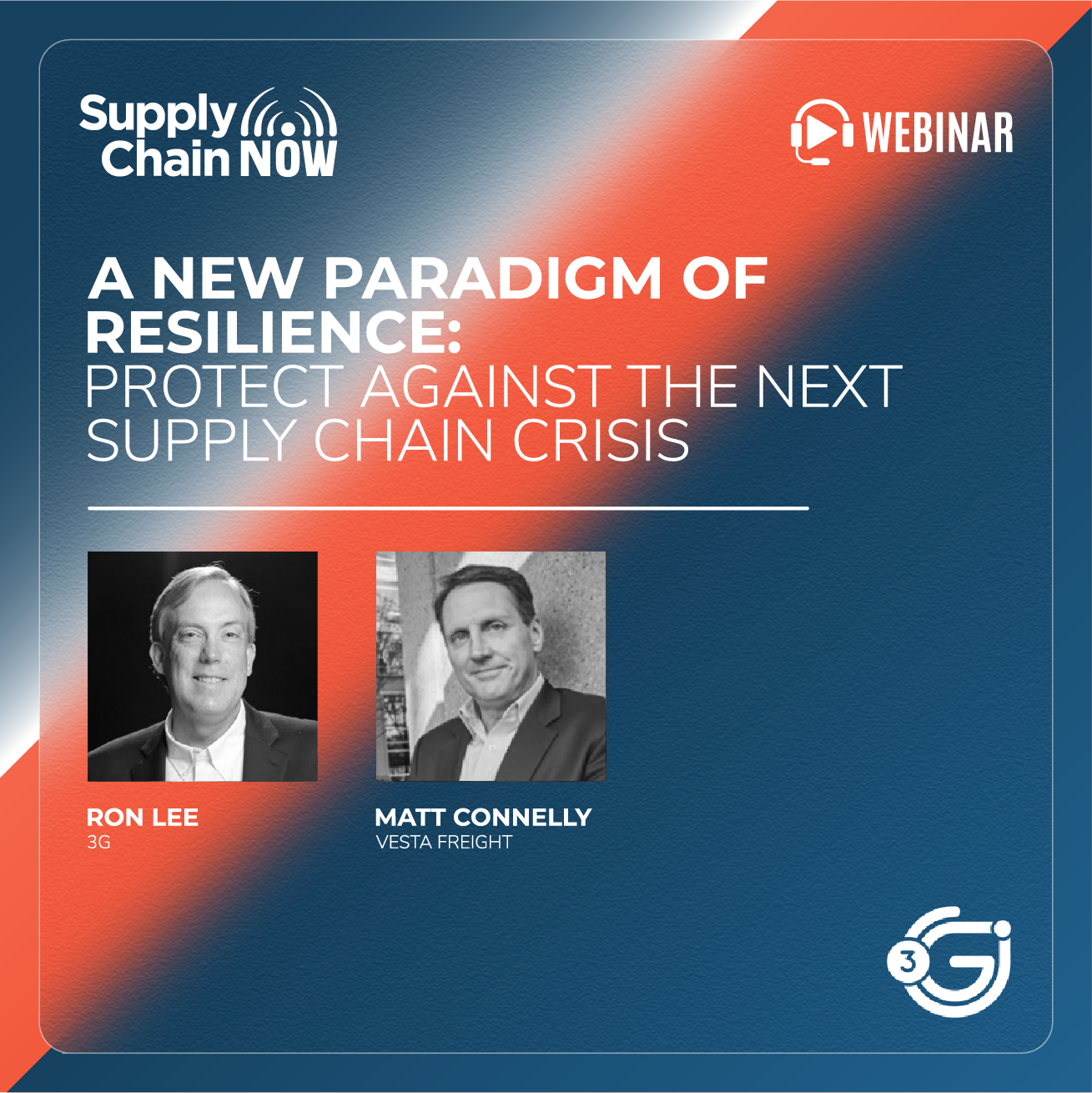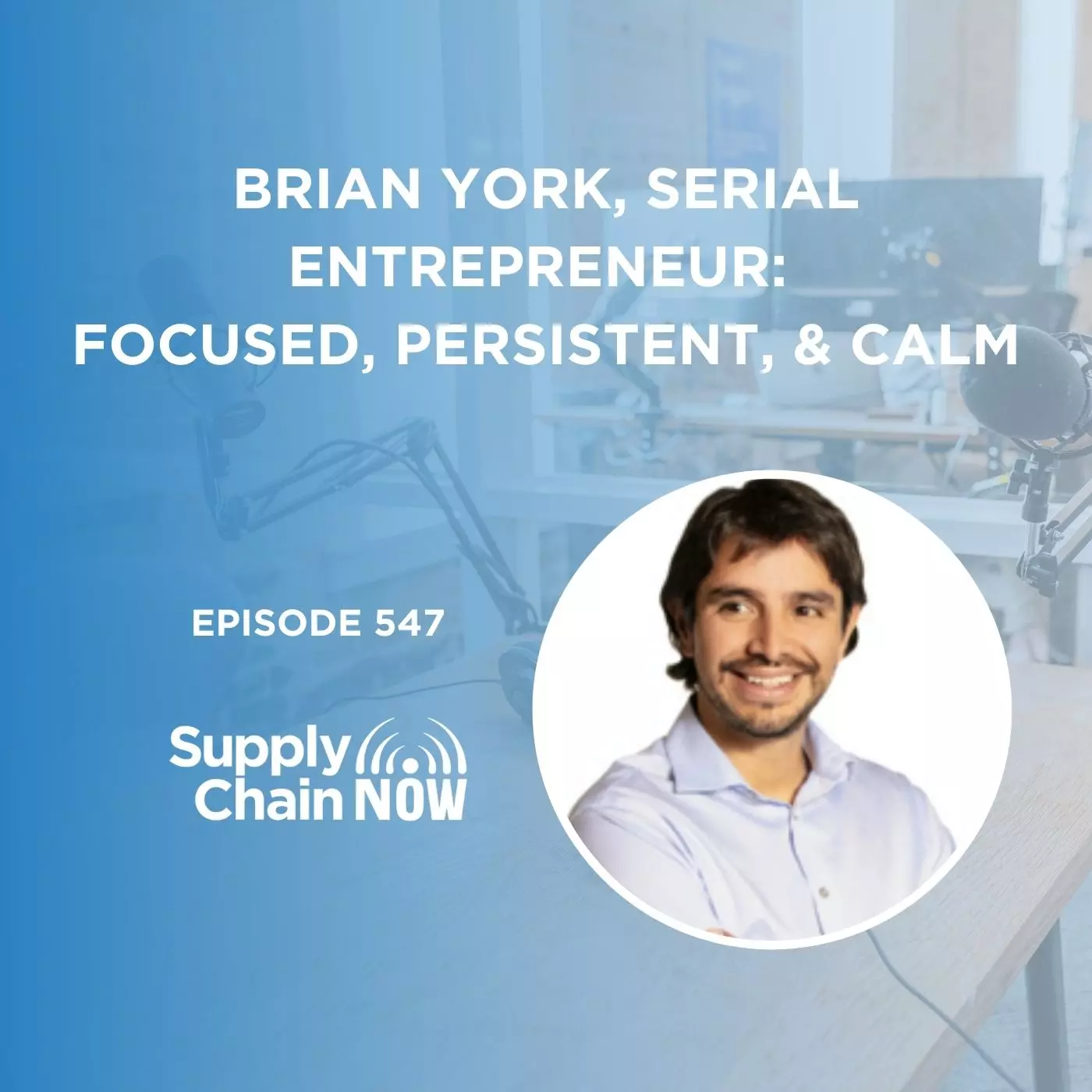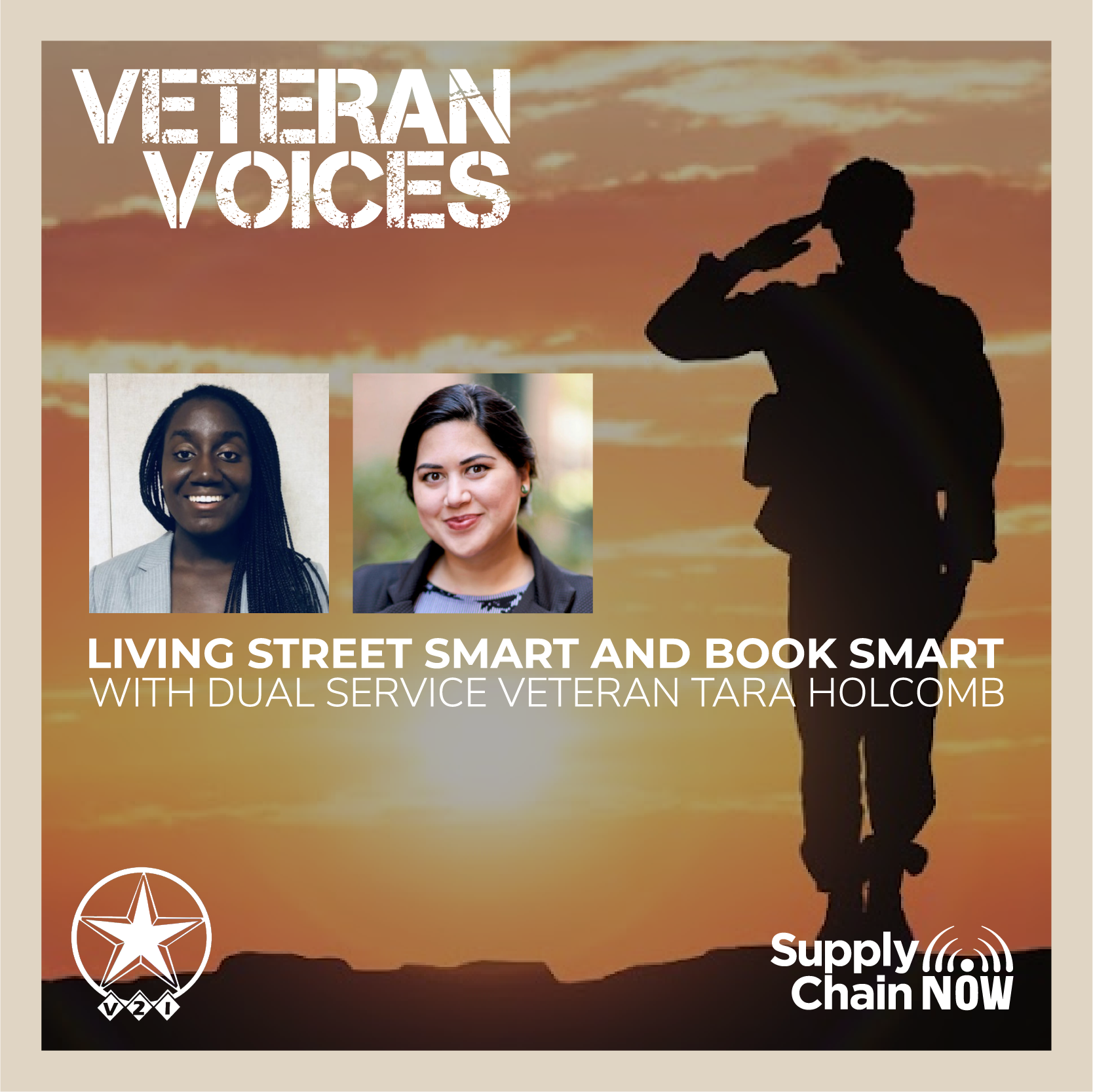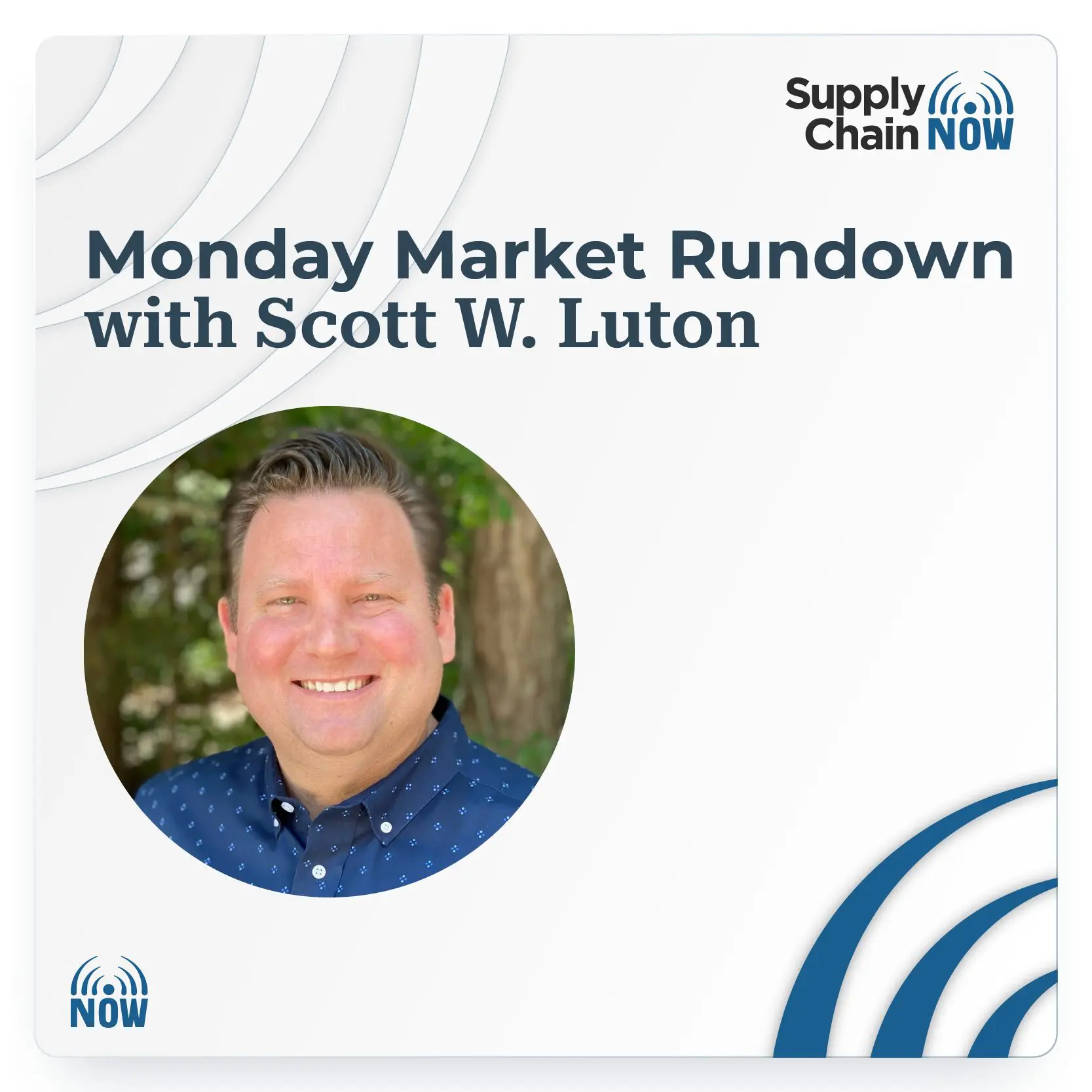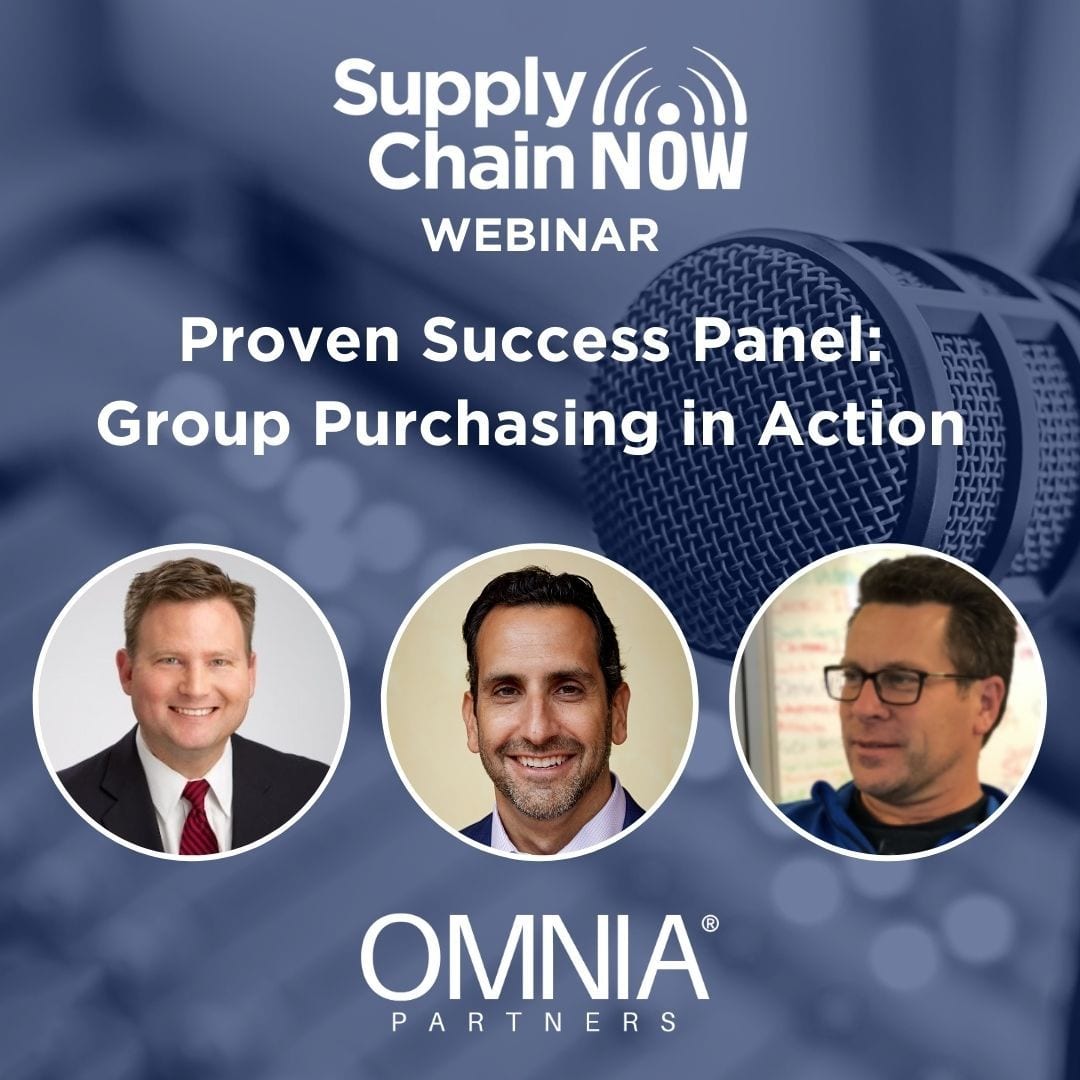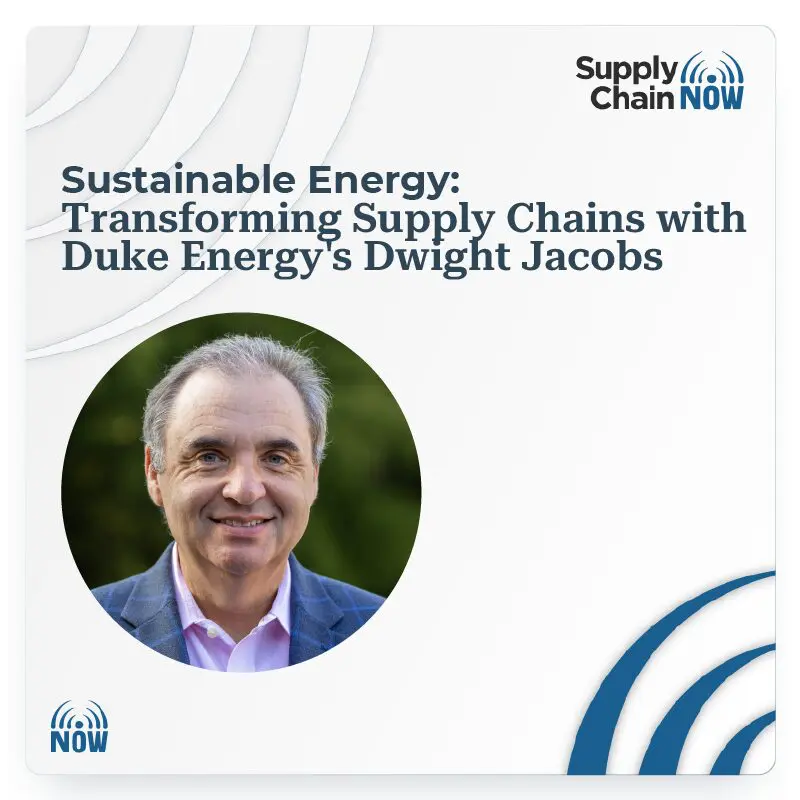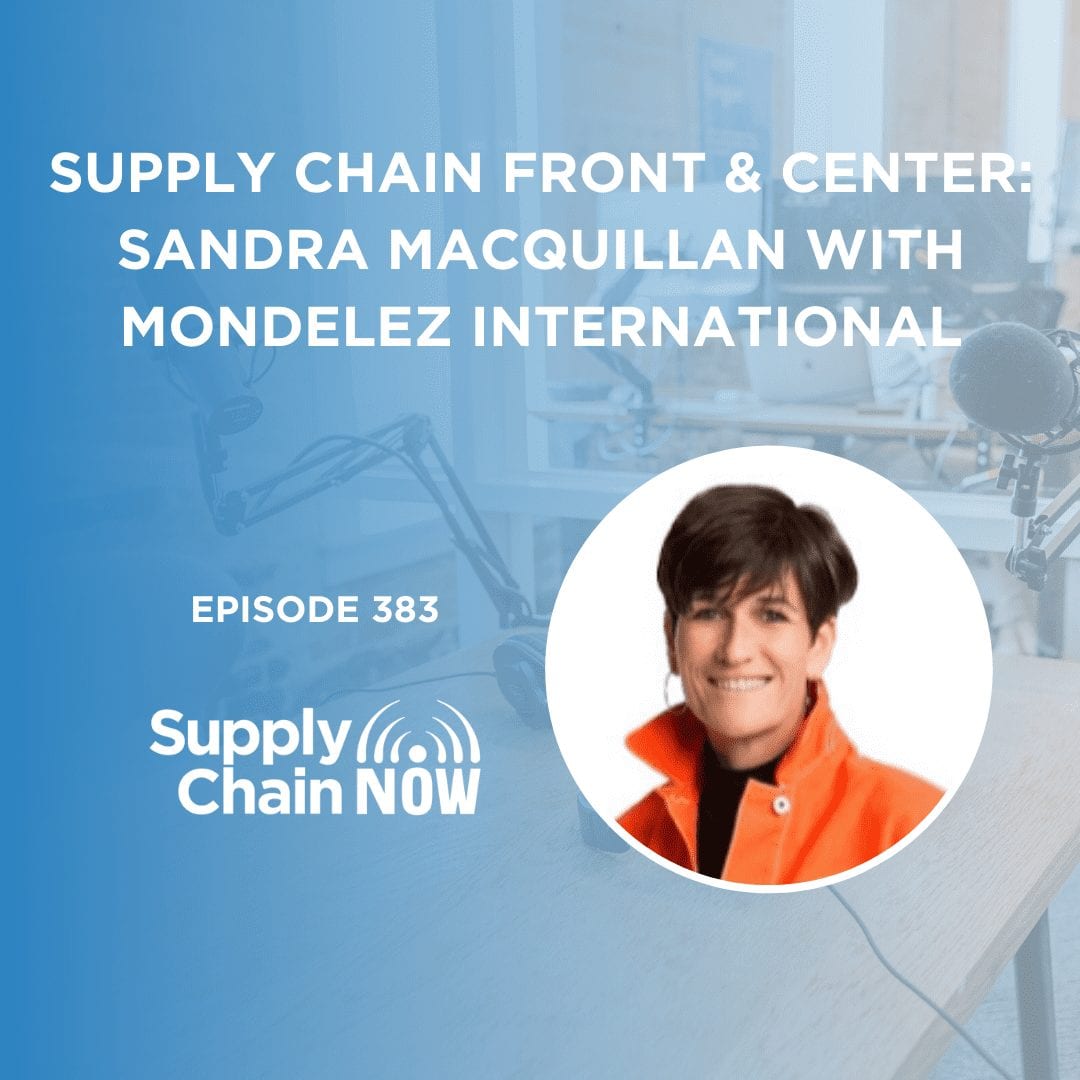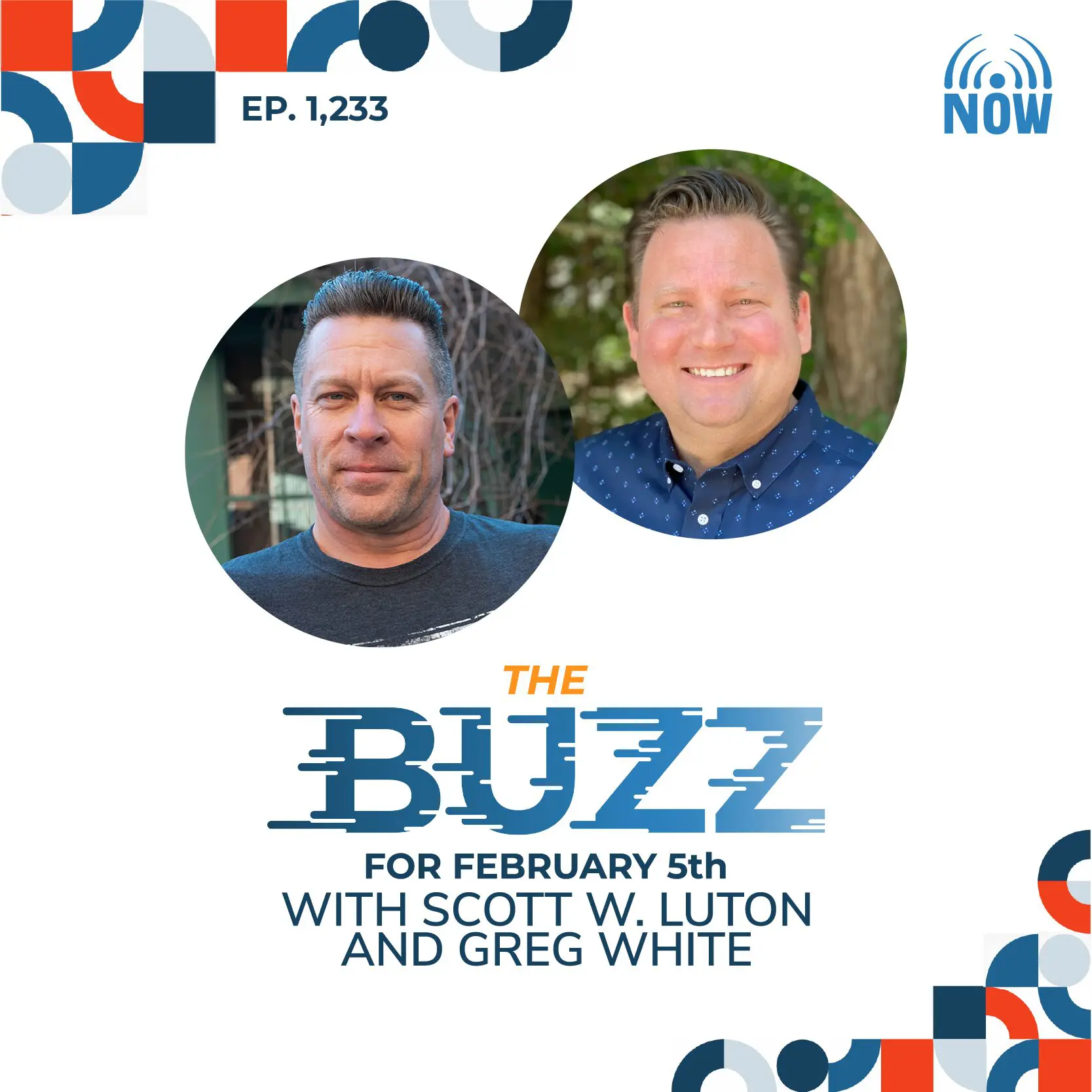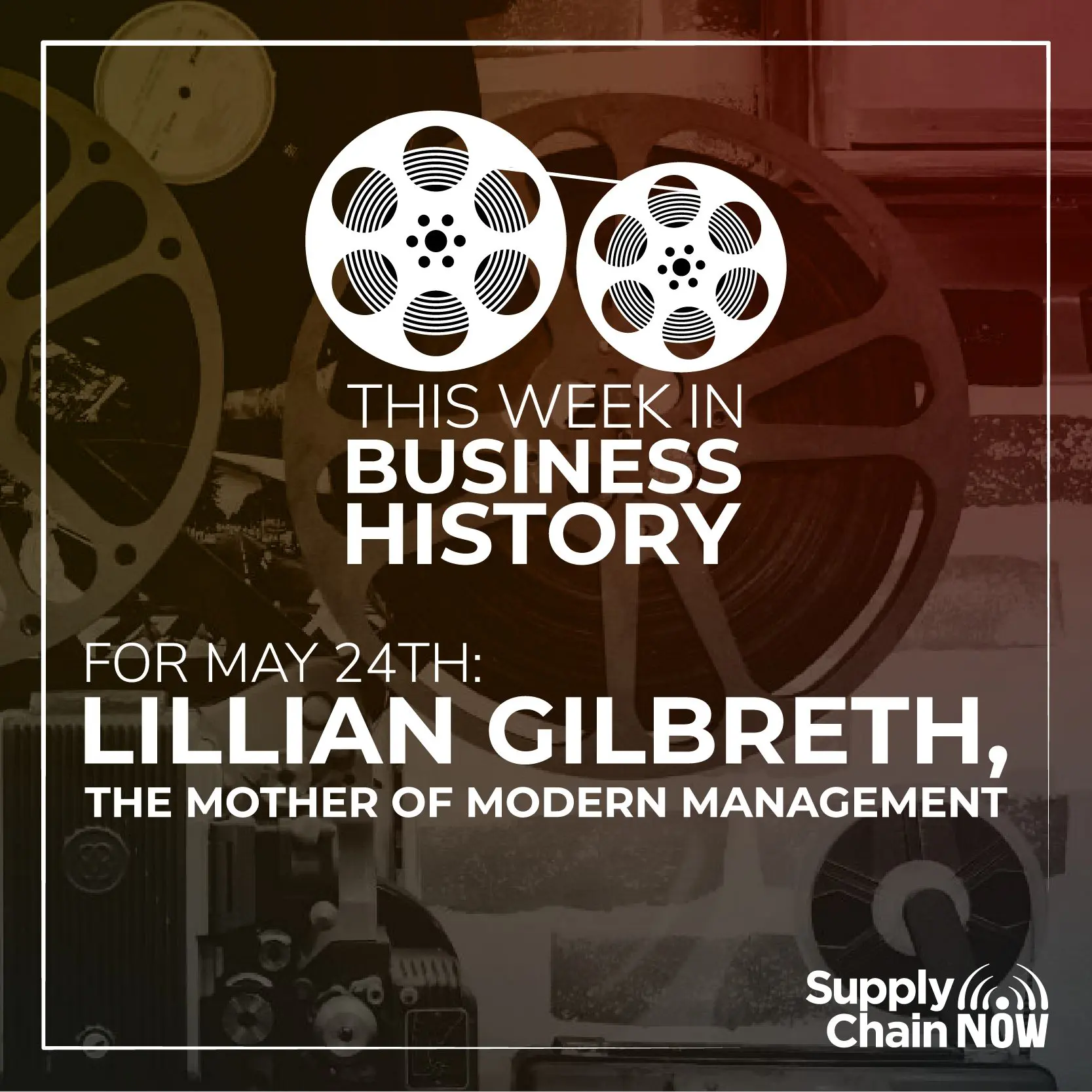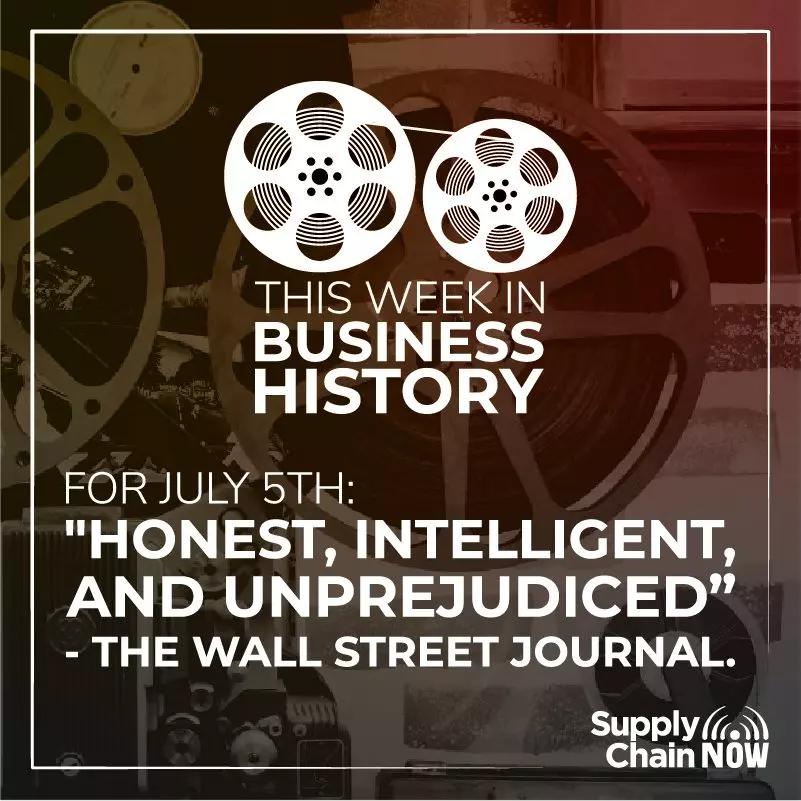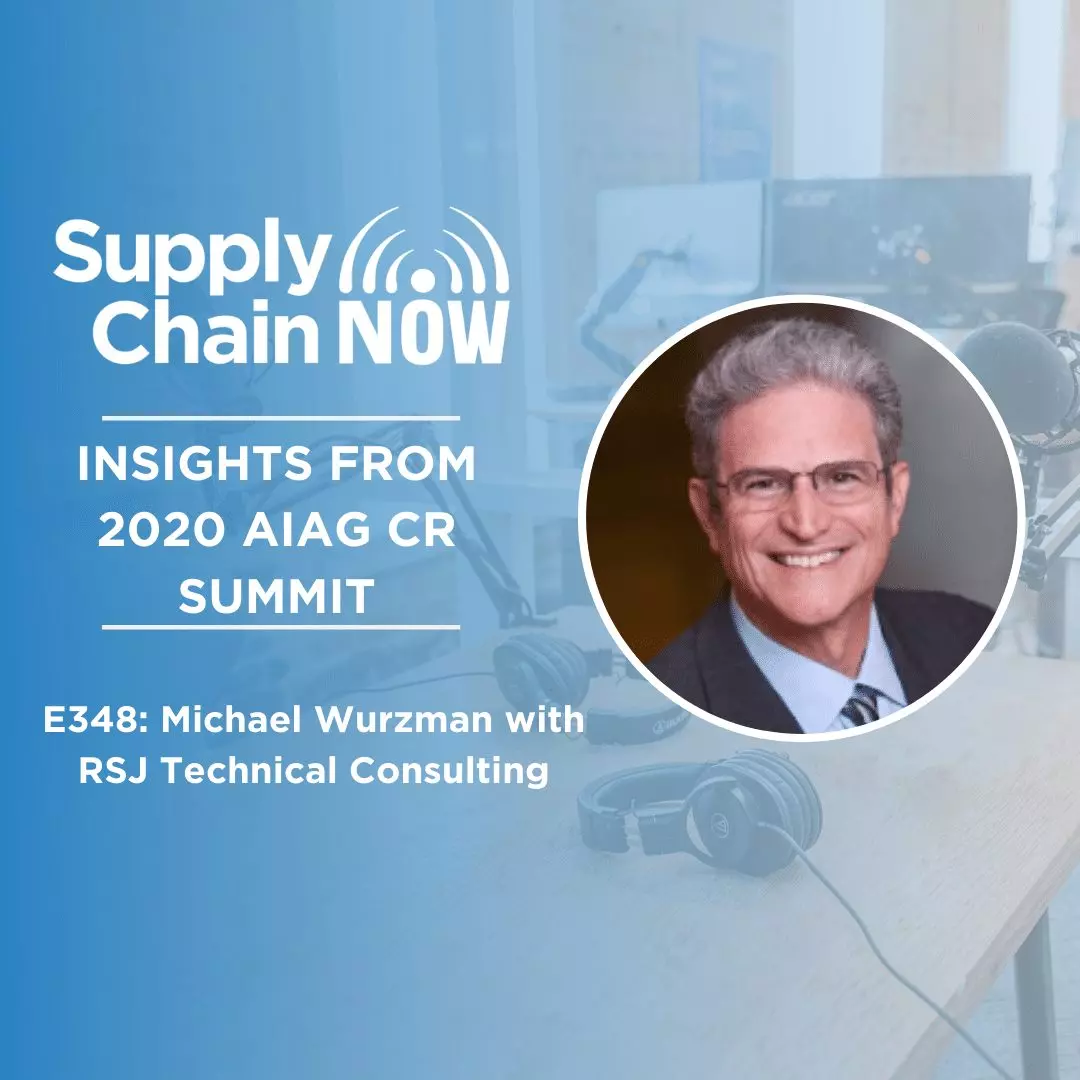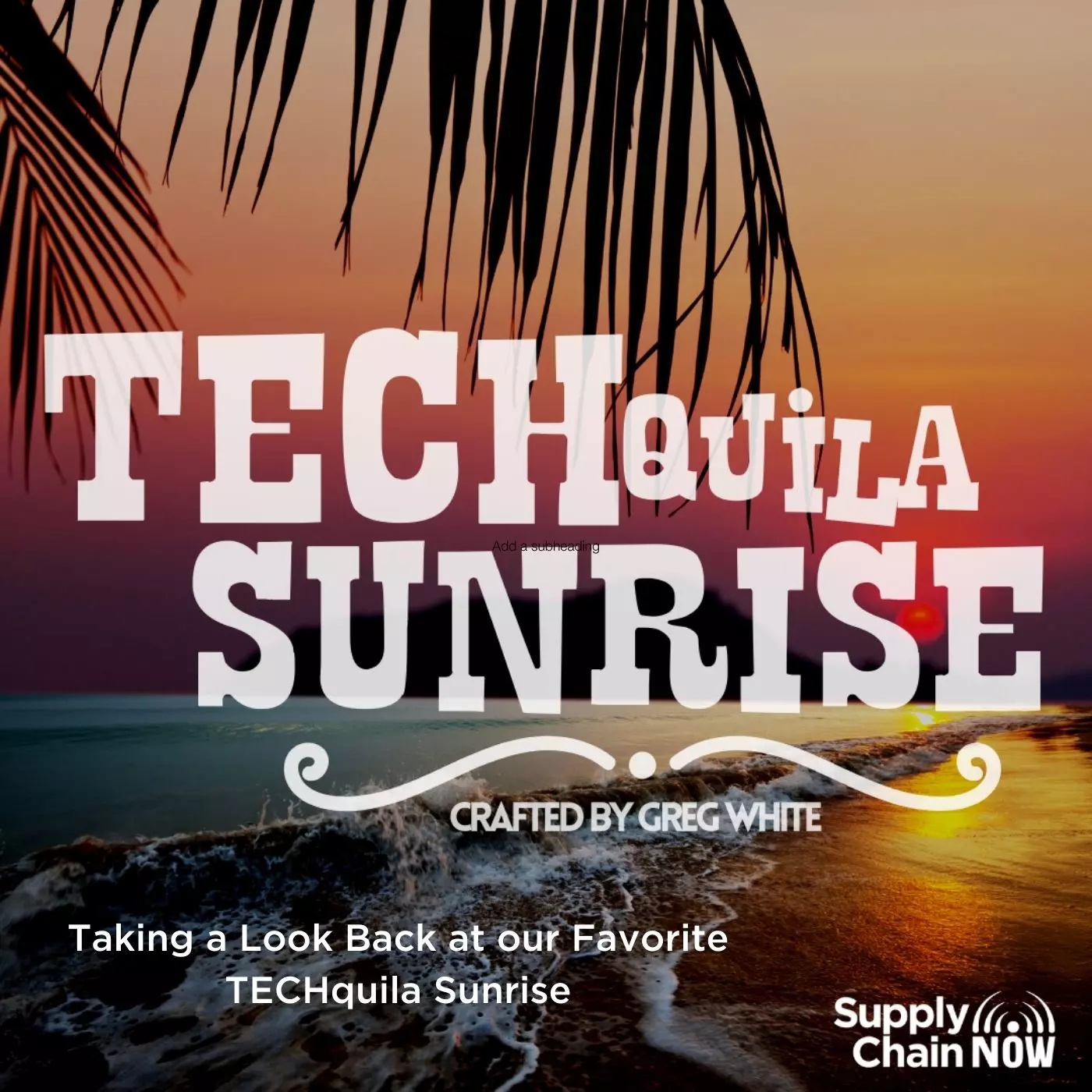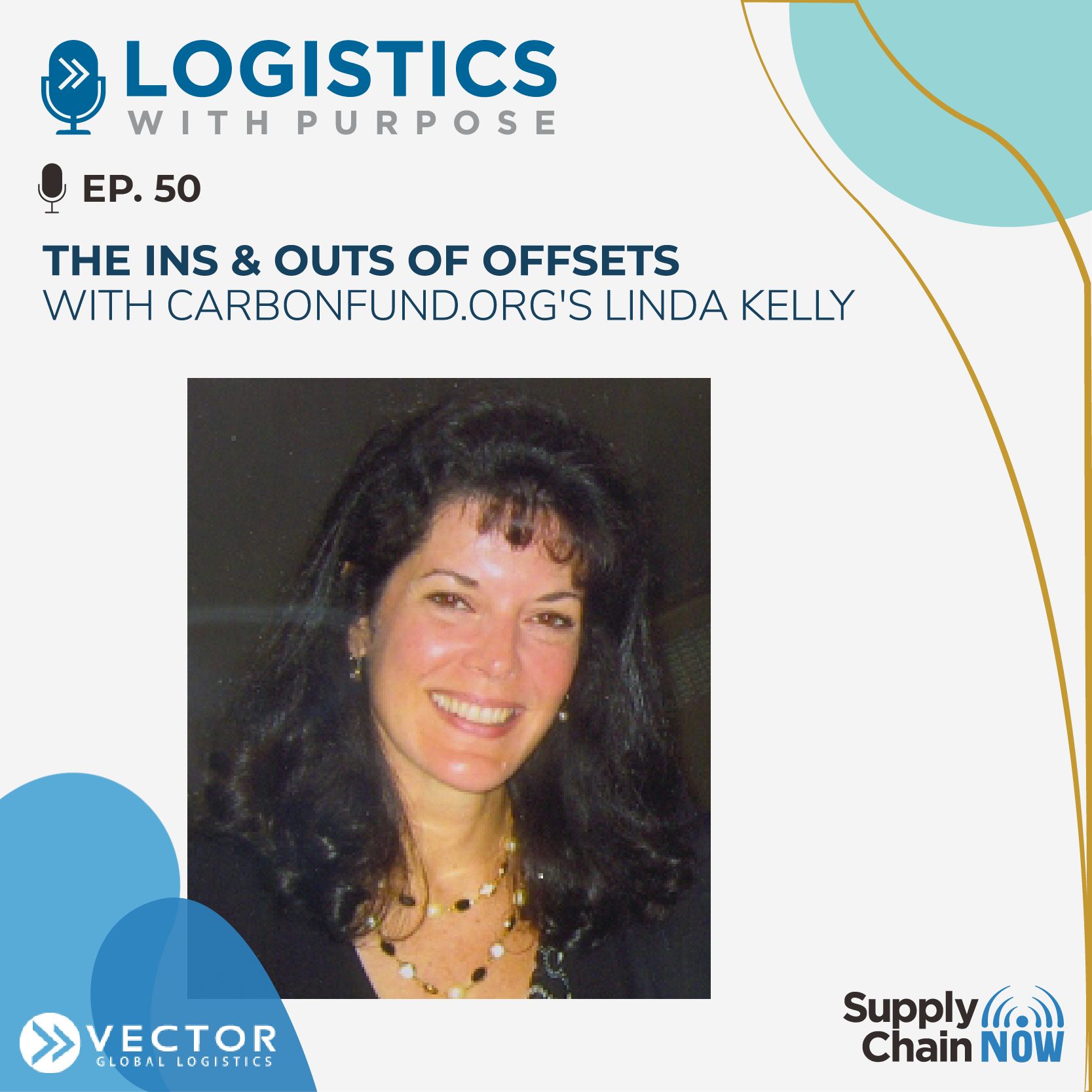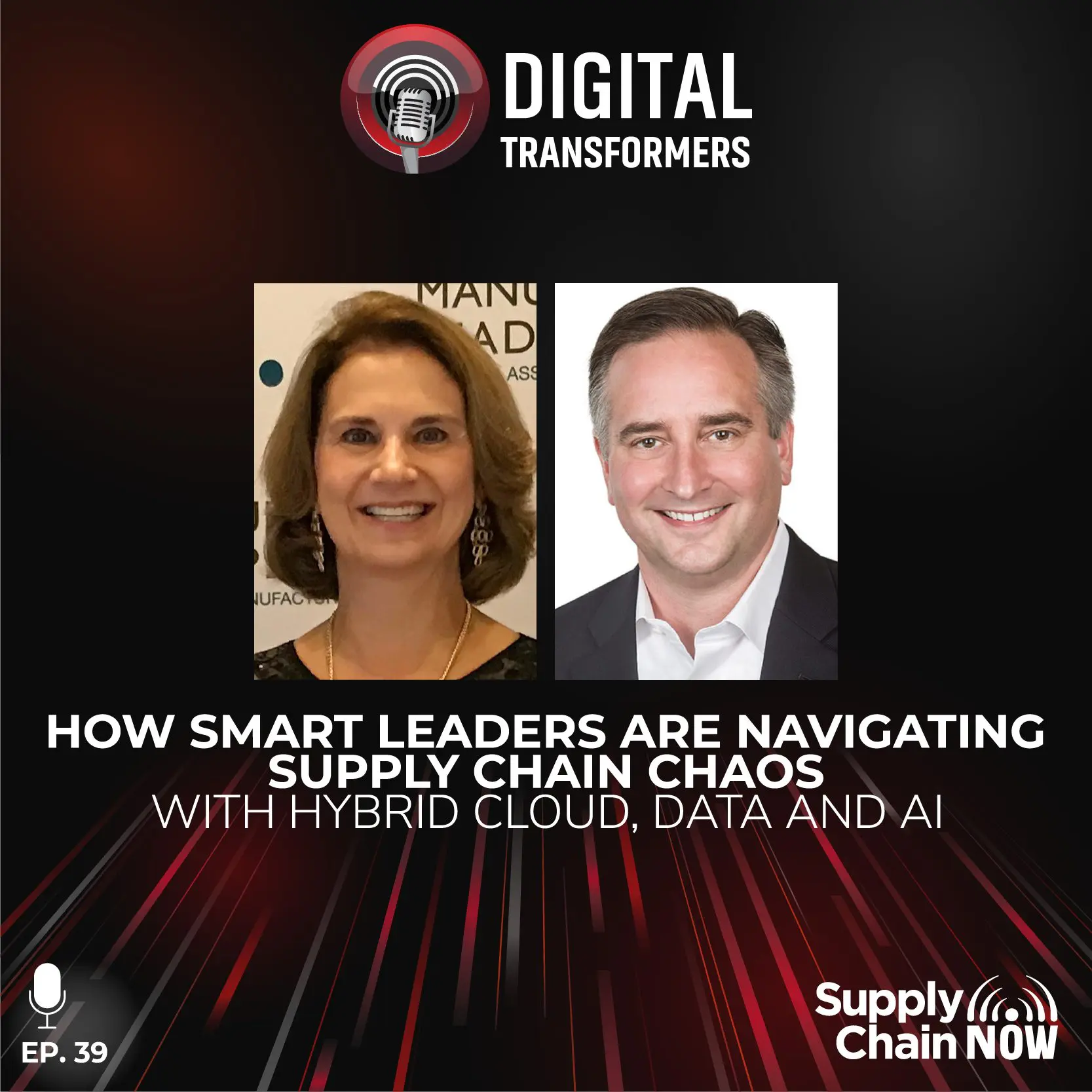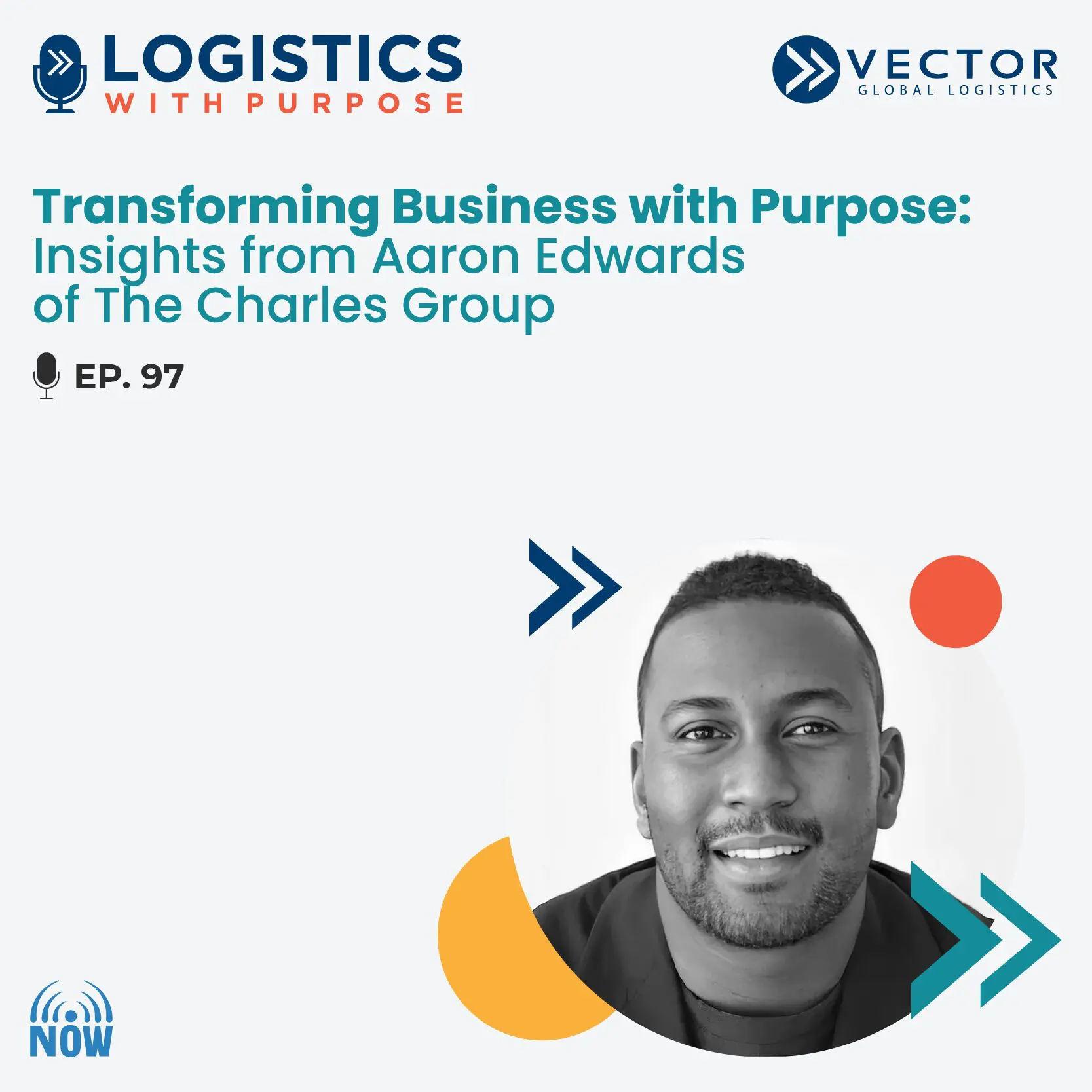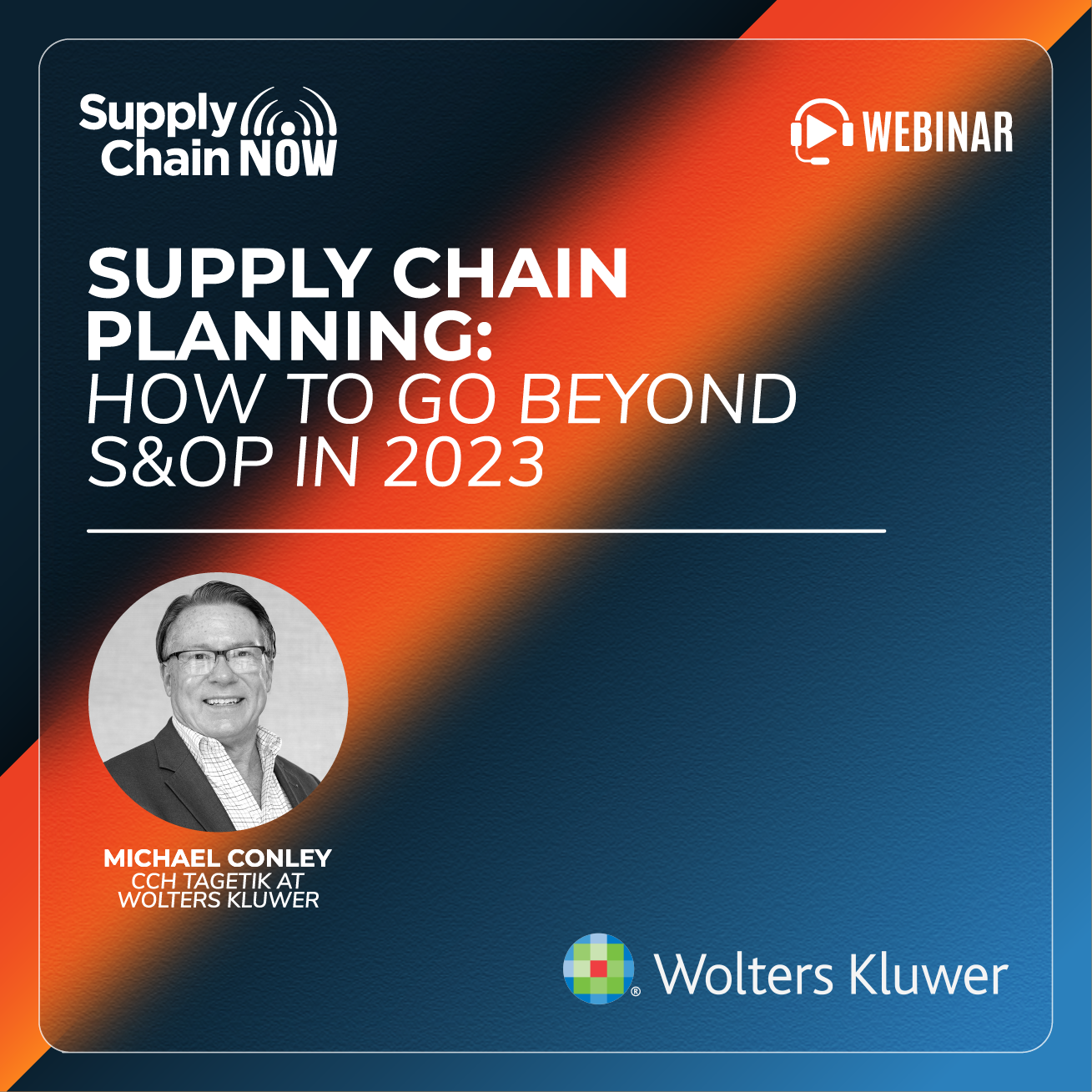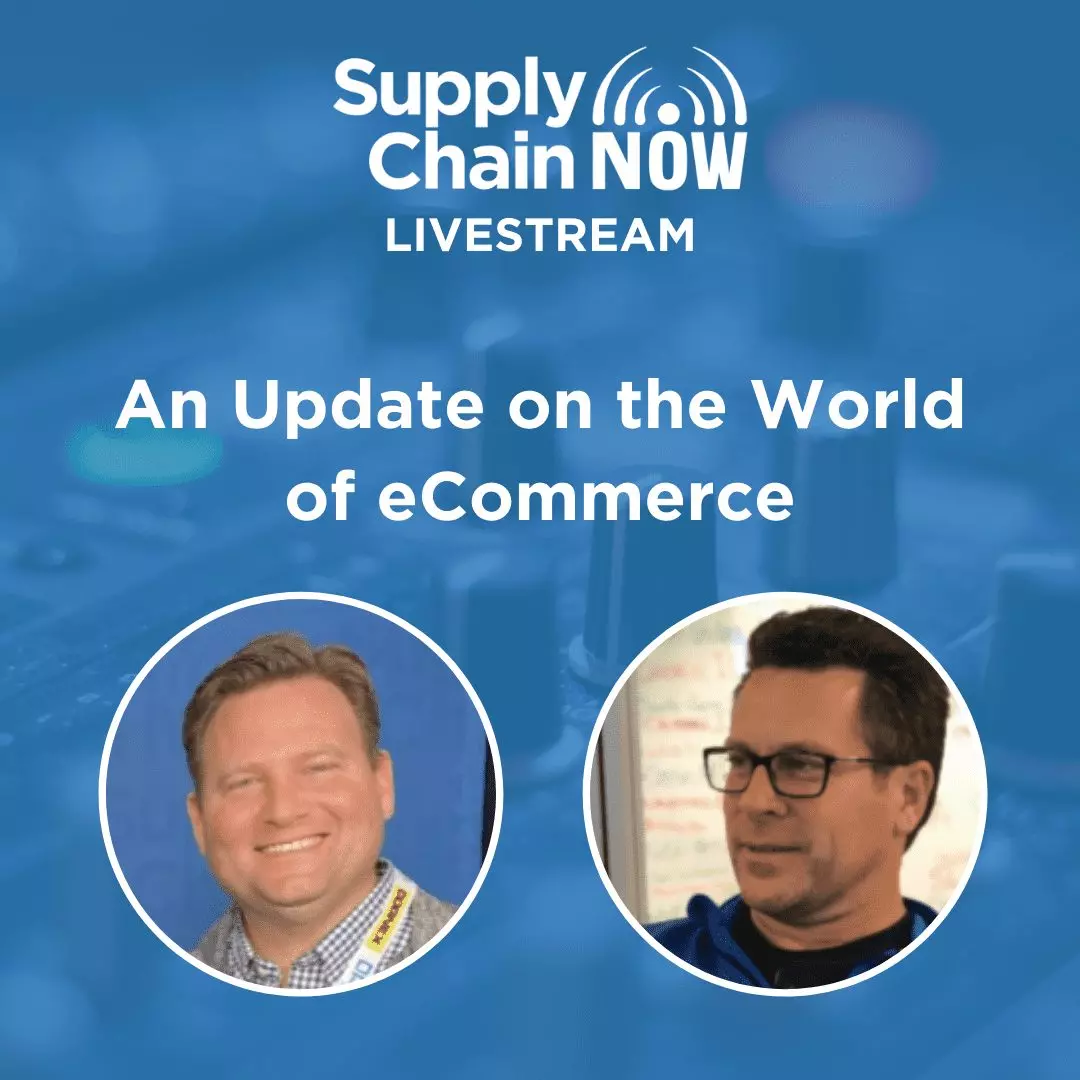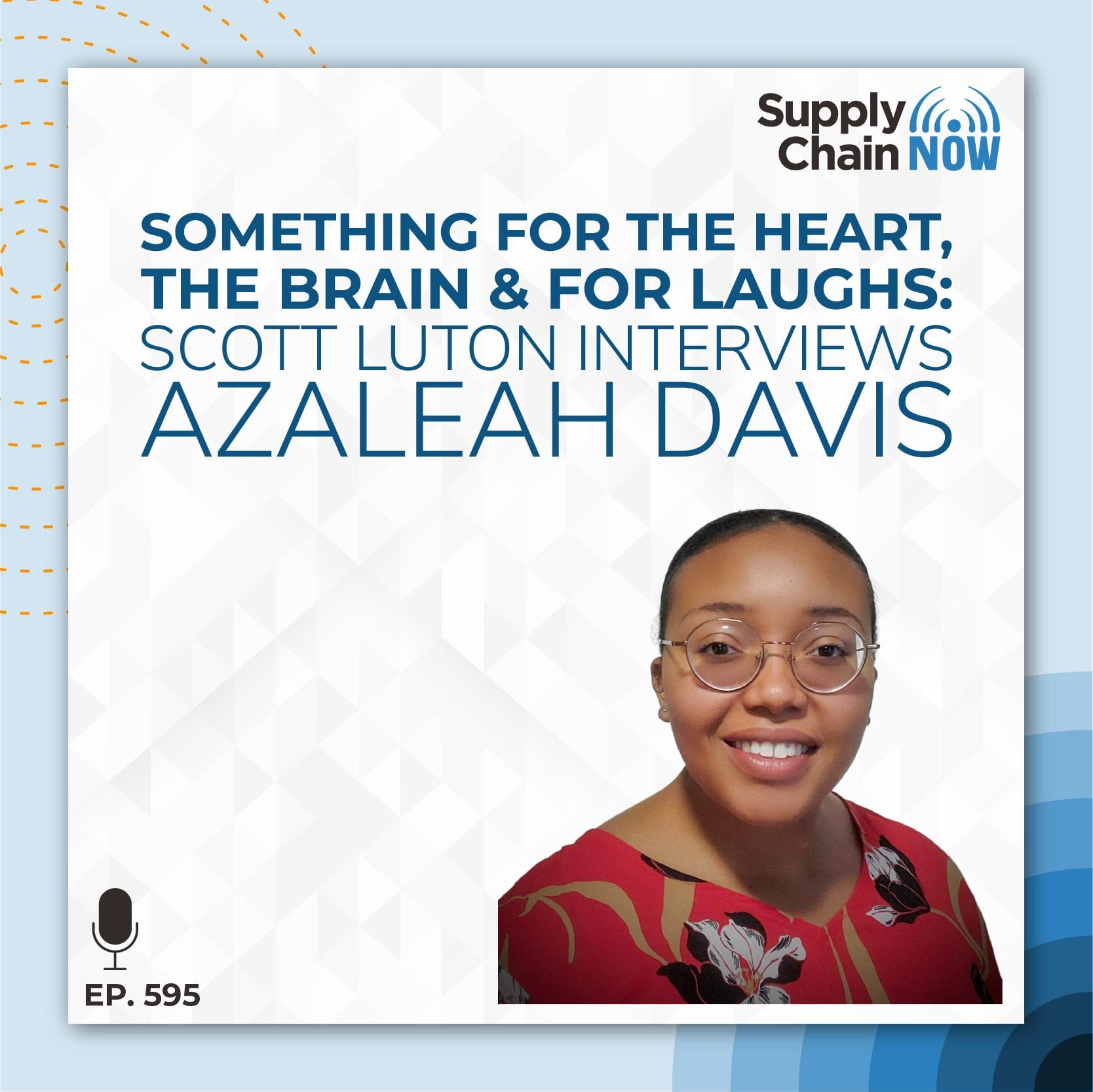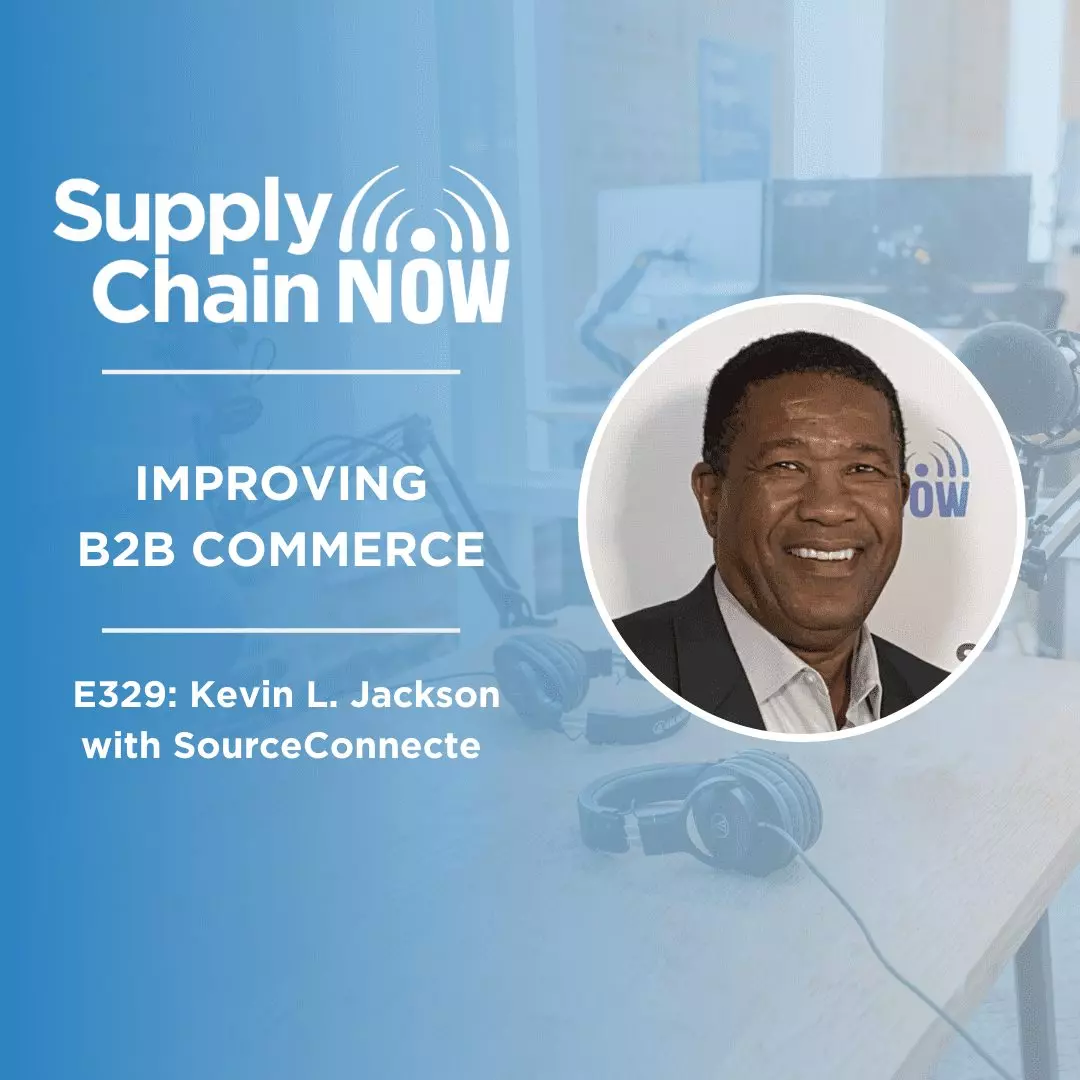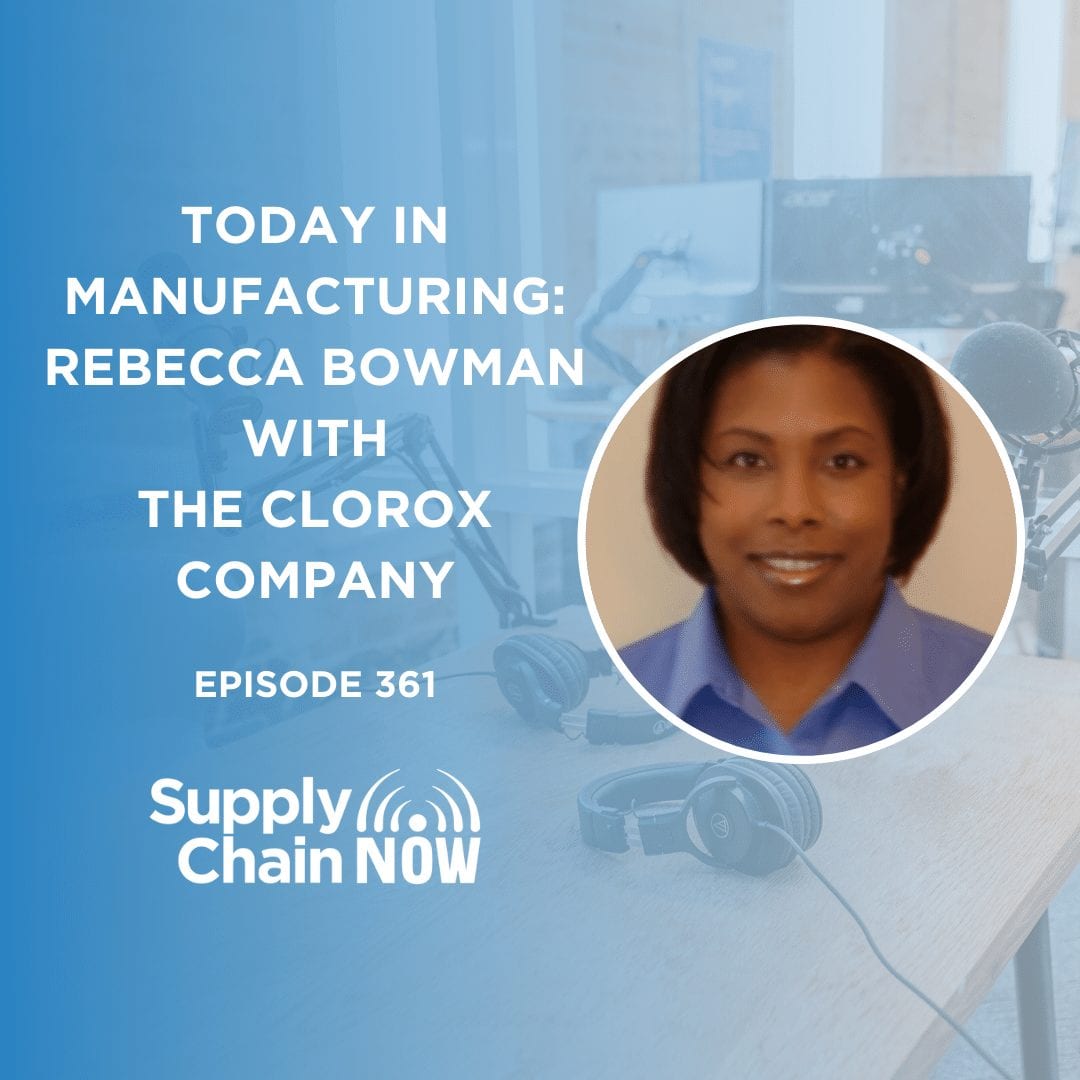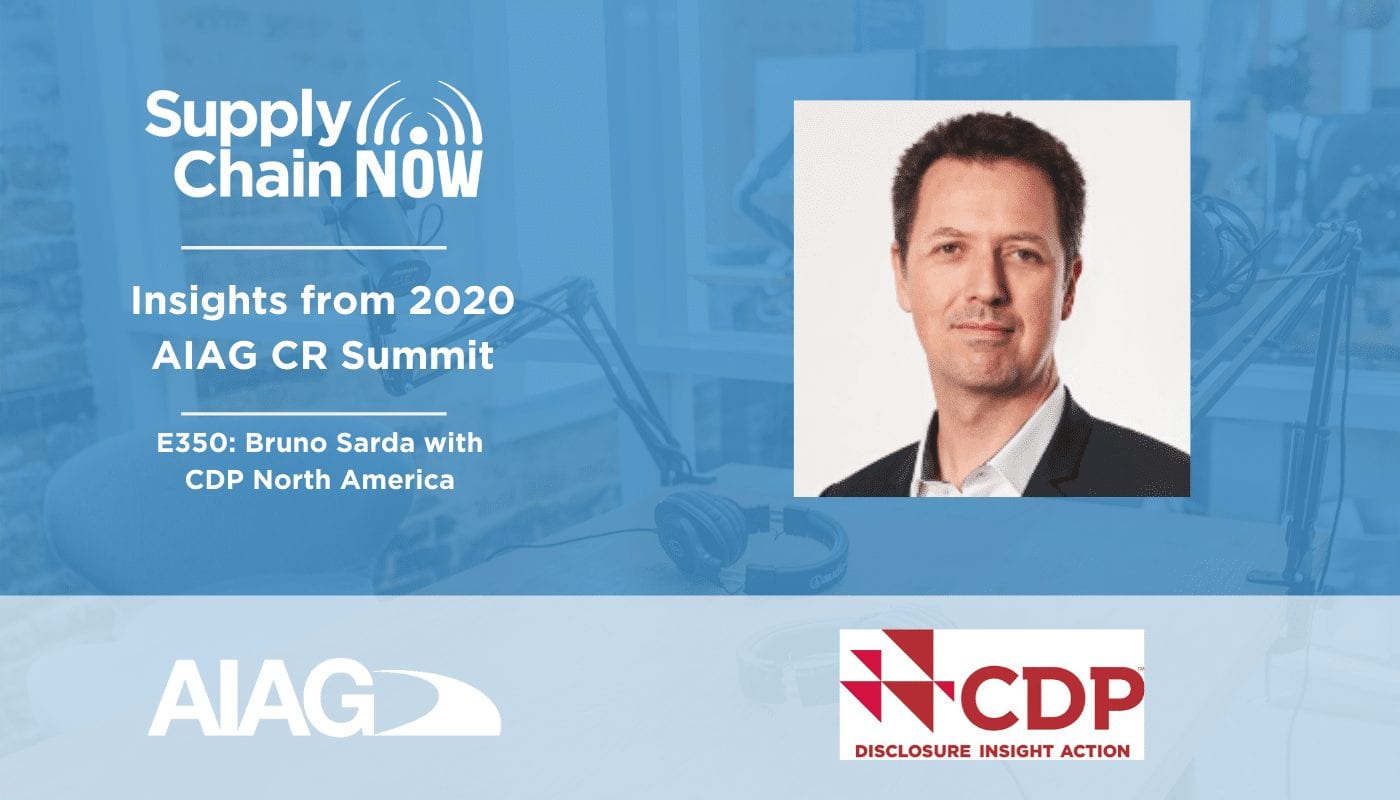
Episode Summary
“Ultimately, none of this matters if it doesn’t lead to change and to specific actions.”
– Bruno Sarda, President of CDP North America
CDP was founded 20 years ago to achieve a relatively simple goal: to create a systemic link between environmental information and financial information. At the time, companies were just starting to try to understand how emerging environmental issues, most specifically climate change, impacted investment portfolios and market returns over time. Investors wanted data but none was available.
Bruno Sarda, President of CDP North America, has worked to create a unique information capture system that addresses climate change, water security, commodity-driven deforestation, and some specific commodities: soy, palm oil, timber, and cattle. He brings together academics, policy makers, and activist groups – and then brings business and finance to the table.
In this conversation, Bruno explains to Supply Chain Now Co-hosts Greg White and Scott Luton:
- Why it makes good business sense to invest in the environment (For the last seven years, companies with an ‘A’ rating from CDP have outperformed their peers in the stock market by an average of 5.5% annually.)
- The ways in which supply chains represent a significant opportunity to scale and systematize corporate investments in sustainability
- Which industries are best positioned to make changes that will have a positive impact in the short run, given that there is not a single industry today that isn’t going through some kind of transformation.
Episode Transcript
It’s time for supply chain. Now broadcasting live from the supply chain capital of the country, Atlanta, Georgia, heard around the world. Supply chain now spotlights the best in all things. Supply chain, the people, the technologies, the best practices, and the critical issues of the day. And now here are your hosts.
Scott Luton (00:28):
Good afternoon, Scott Luton here with you on supply chain. Now welcome back to the show. On today’s episode, we’re speaking with an industry leader that helps focus investors, companies, and cities on taking urgent action to build a truly sustainable economy. I’m measuring and understanding their environmental impact. This interview is part of our continuing collaboration with the automotive industry action group. So stay tuned as we look to increase your supply chain IQ. Quick programming note before we get started here, if you enjoy today’s conversation, be sure to find us and subscribe wherever you get your podcasts from. Want to welcome in my fearless co-host on today’s show? Once again, mr Greg white, cereal supply chain, tech entrepreneur and trusted advisor. Greg. Good afternoon. Good afternoon, Scott. How are you doing? Fantastic. Uh, we’ve got a great guest here to interview you.
Scott Luton (01:24):
Um, this will continue a string of really interesting interviews that have been associated with the upcoming summit that the, that AIG is putting on. So looking forward to this one. Yeah, we’ve met with some really interesting folks. Um, and you know, this is maybe that not everybody knows, but you, and I know this is a topic of real passion for you and I, um, in terms of corporate responsibility, sustainability, ethical business practice, all of that sort of thing. So it’s, you know, it’s been an interesting talk to a bunch of people who are focused on this. Absolutely. Well, not only is it interesting to me and you, but consumers are demanding it more and more, right. Uh, in terms of how companies operate and decisions they make and what they support and, and their messaging. So let’s welcome in our feature guests here today. Uh, Bruno Sarda president at CDP North America. Bruno, good afternoon.
Bruno Sarda (02:25):
Good afternoon. Thanks for having me.
Scott Luton (02:27):
Really appreciate your time and your thought leadership and looking forward to learning a lot more. Um, uh, Greg, before we dive in to CDP, let’s, let’s kinda get a sense of who Bruno is. So Bruno, tell us about yourself, including say you know, where you’re from and, and, uh, maybe walk us through your professional journey, especially any positions that that helped shape your worldview.
Bruno Sarda (02:53):
Sure. Um, well, let’s see. Uh, I’m actually a native of Paris, France, that’s, I originally grew up, um, and then moved to the States and my, in my late teens, she went to, came to the U S for university, uh, and ended up marrying and staying here. Um, I’ve lived on both coasts, uh, currently live on the East coast. I’ve lived on the West coast. I’ve lived in the middle as well in places like Austin, Texas and Phoenix, Arizona. Um, and, uh, um, uh, yeah, just, uh, uh, it’s, it’s been, it’s been an interesting journey. And then, uh, you know, professionally I’ve had, um, an interesting opportunity, uh, to be kind of at the start. I have two significant kind of societal movements. The first 15 years or so of my career. We’re kind of forged in the crucible of the internet. And the early days of digital disruption, you know, from the mid nineties, uh, for about 15 years, you know, kind of road that, um, that kind of crazy wave of how the internet really kind of plowed through society, the economy, business, uh, consumer practices, and really changed everything in its wake.
Bruno Sarda (04:07):
And, um, at the time worked for, you know, originally for Charles Schwab, you know, as it was trying to figure out in the financial services sector how the internet should be viewed, how it was or wasn’t going to change a business. And Schwab was, I think, very precise moment and realizing this thing’s going to be big and it’s not whether or not we want it to happen, it’s how we deal with it. And so that really helped me learn early on the importance of how do you take these big kind of outside, external disruptors there’s, and turn them into an innovation platform, turn them into an opportunity pathway. Um, and so I did that for a long time at Schwab. I then moved down in the tech sector, worked for Dell for 11 years, where again, I led part of Dell’s, uh, kind of eCommerce strategy and platform.
Bruno Sarda (04:54):
Um, and then actually pivoted then about 10 years ago into, uh, corporate sustainability. So as you know, not that the internet is, is ever truly a mature platform, but, but this idea that, you know, things like climate change, like water scarcity, like, you know, uh, circular economy and other things where we’re starting to be, you know, big enough on the horizon that it was clear that it was going to impact business, it was going to impact that. She, a lot of things similar to the way the internet did. Um, uh, and so I kind of took everything that I learned that you will in kind of managing and riding this wave of digital disruption, uh, to do the same with sustainability. You know, things like climate change. It’s not how you feel about it or, you know, it’s really what, how you help your organization prepare to, to, to ride that wave and turn it into a way to, to competitive differentiation, to market innovation. And ultimately to, you know, to, to, to meeting or shaping, uh, customer demands. Okay.
Scott Luton (05:58):
Well, uh, you’re reading my mind because what I wanted to ask you is what successful companies get right when, when presented with these huge movements. But you are on the tail end of your answer. You kind of spoke to that a bit. Anything else come to mind? I mean, clearly some of the big names you’ve worked for and some of what you’re seeing out in the industry. Um, the internet that’s changed everything and, and circularity and circularity thinking may do just that and much more, um, here in the years ahead. What, how do you view successful? Anything else you want to add to your answer in terms of how successful organizations really get it right, given these movements?
Bruno Sarda (06:39):
No, I think there’s, there’s several lessons and one that I learned is again, is I think you have to approach all of these with a right balance of, you know, willingness to take risks and, and deal with ambiguity, you know, make decisions in the face of uncertainty and incomplete answers, but also with a lot of humility. And, and being, you know, truly trying to always be the student and not the teacher. And in fact, so much so that I ended up actually reconnecting with academics, um, institutions in my path early in my sustainability journey. So much so now become, actually I’m a, I’m a professor of practice, a faculty member at Arizona state university and they’re a school of sustainability, actually teaching sustainability leadership to executives partly because you know the saying, right, if you really want to learn something, you learn like 10% of what you, uh, read whatever of what you do and then you, you know, you retain much more of what you teach. And so I think that the lesson there is it’s just be be hungry for knowledge. I think be open to outside ideas, including conflicting ideas. You know, you always learn something from somebody who disagrees with you, um, and, and approach it with an open mind.
Scott Luton (07:52):
Love that. We need a lot more of that type of approach in, in modern society. We, we’d all be so much better off. Hey, Greg, I want to bring you in because we’re going to talk about CDP momentarily, but, but you, uh, and Bruno have something in common and that y’all both spent some time in Phoenix, Arizona, right?
Greg White (08:09):
We may have, yes. In fact, um, my wife is from Tempe.
Bruno Sarda (08:15):
Great.
Greg White (08:16):
And I have spent many a day, maybe too many nights on mill Avenue.
Scott Luton (08:22):
I know it well. And of course
Greg White (08:26):
we’re big fans of, uh, Arizona state and in particular their supply chain and business programs there.
Bruno Sarda (08:33):
Yeah, we, um, we interviewed a Tendra Chaturvedi
Greg White (08:39):
about two weeks ago. Uh, and wow, what an incredible talent there, there. I mean, there’s just so much knowledge
Bruno Sarda (08:47):
in that organization,
Scott Luton (08:51):
so I agree with that. So you and your, uh, currently, um,
Greg White (08:56):
uh, part-time adjunct professor at ASU Bruno, is that right?
Bruno Sarda (09:00):
A professor of practice? Yeah. Yeah. And I worked quite a bit also with, uh, with some of the, some of the faculty and their supply chain program. Um, years and years ago I was actually co-chair of one of the working groups of the sustainability consortium, which was also closely connected to their supply chain management program.
Greg White (09:19):
Okay man. Bless be the ties that bind. So Greg, let’s talk about CDP. Yeah. So let’s take you a little bit away from Phoenix and uh, give us an idea of what CDP does. We’ve put a little bit of research into it, but for our listeners, give us an idea of what CDP does and the role you play.
Bruno Sarda (09:44):
Sure. Um, well, you know the re the name, uh, stands for the original name of the organization was the carbon disclosure project and then as we expanded beyond just kind of a focus on carbon, then the names CDP stock cause frankly everybody who worked with CDP called it CDP and not the carbon disclosure project, but it’s certainly not a household name. But you know, um, CDP is actually turning 20 this year. It was created 20 years ago actually with a relatively simple idea to create a systemic link between environmental information and financial information at the time. Uh, you know, we were working with some investors really at the Vanguard of trying to understand how emerging environmental issues, specifically climate change would impact portfolios and portfolio returns and market returns over time. And like all investors, you know, they wanted data and there was none because frankly this information was on out there.
Bruno Sarda (10:45):
You had, you know, scientists and academics studying the topic, but frankly, business and finance was not at the table. And so CDP was created basically to, uh, to uh, request information from originally from companies. Then later it evolved to two cities as well. Um, started, you know, back then with working with 35 investors and requesting information from a couple of hundred companies, you know, uh, right now, uh, uh, our investor signatories, um, it’s about 530. Yeah. Um, they manage over a hundred trillion dollars in assets. That’s what a T. Um, and then on their behalf, we collected information from nearly 8,500 companies last year who collectively account for more than 50% of global market cap, um, in a hundred different countries. Longwood disclosures from, um, you know, nearly yet a thousand cities and regions where nearly about a billion people live. And so what that allows us to do is we have basically this unique information capture system on climate change, on water security, and on commodity driven deforestation, specifically on four commodities of soy, Palm oil, timber and cattle.
Bruno Sarda (12:01):
And so we’re able to feed the, basically all of the data ecosystems, both in banks and investors and equity, but also a lot of environmental nonprofits think tanks and frankly even policy makers to help them understand, you know, how is business and how are subnational entities preparing for some of these shocks, you know, innovating in the face of some of these disruptive, uh, uh, external changes. Uh, and, um, and we are in a way, if you will, the scorekeepers, you know, the scorecard, uh, of, um, of how business, uh, and finance are, are interfacing on these, uh, on these topics.
Greg White (12:45):
So this started as a service to investors. It seems to assess the kind of exposures in the future, the companies they might invest in or have invested in, uh, might have, that could be costly either from an operational or a brand identity or some other aspect of the business. But it seems like it’s evolved into a more active role than that. Is that a fair estimation?
Bruno Sarda (13:16):
Yeah. You know, we, uh, that’s, that’s a great, great insight. Uh, you know, w when we, we, you know, we set out exactly to collect information to help investors, uh, have this information. But what we found is like people were really helping asking us to help them figure out, so what does this mean? So, you know, our little tagline at CDP is disclosure, insight, action. Cause ultimately none of this matters is if it doesn’t lead to change and to specific actions. And so the disclosure, the collection of information if you will, is, is the bulk of the work. But then, um, you know, it leads to a very specific set of insights against, some of them are sector specific regions, specific markets specific. Um, and then those insights then lead to action. And then where we’re also actively engaged. For example, we, uh, you know, we’re kind of the tip of the spear of this organization or this effort called the science based target initiative.
Bruno Sarda (14:09):
We now have, uh, about an 850 large companies that have said are committed to set a science based target to address climate change in line with basically, uh, accepted climate science and the Paris accord. Uh, same on, on other, um, areas of their environmental footprint. Uh, so we’re, we’re engaged in actually helping, uh, uh, businesses really drive action. And this is what led to, frankly, the creation of CDPs. Uh, you know, supply chain program is about 12, 13 years ago. Walmart actually are the ones who said, Hey, you know, that thing you keep asking us, can we do that to our suppliers? Because we would love to basically see level of information from our suppliers to help us understand where we potentially haven’t managed climate risks or, or untapped opportunities in our supply chain. And, and you know, began at the time with just one, mind you, very large company, but one company, man, we work with about 130 large multinationals, including quite a few in the automotive sector to, uh, uh, to collect information from thousands and thousands of companies across their supply chains, many of which are actually not publicly traded. So this goes beyond that. You will, our investor requests, um, to, to create visibility not just for investors but also for, uh, for companies.
Greg White (15:32):
Yeah, I noticed that. I mean, you have a lot of potential, um, constituencies there, right? States and cities and companies and um, you know, um, and other governments and that sort of thing. And this is, this is a really, really common, uh, initiative and it has, it’s funny, doesn’t seem like it’s been 20 years, I’m sure, but it has been over the last 20 years. Uh, something that, as Scott said earlier, consumers, buyers, right. The ultimate customer is more and more aware of and making decisions based on. And um, it has really necessitated the not, you know, if Walmart wants to be accountable to their consumers, they need to know what, where their goods are coming from and whether they are being produced or sourced, uh, or distributed sustainably. So it’s, is it the case that you, um, surface this information only, or is it ever the case that you help companies? I guess, you know, maybe, maybe I should cut to the broader question, which is, you know, what are the big problems that you’re helping customers solve? I think you’ve described that, but I’m curious specifically around weather you help them not only understand what those issues are, but maybe even help them solve them or point them the right direction. Cause it seems like you would accumulate the knowledge of how to, how to mitigate some of these risks. Um,
Bruno Sarda (17:13):
yeah, no, it’s, yeah, no, it’s a great question. You know, we are, um, we are a nonprofit, you know, we’re not a a consultancy. We’re not a solution provider and we’re, we’re careful to, you know, to kind of retain, if you will, our autonomy. Uh, in that sense, especially because as I mentioned earlier where the kind of the scorekeepers actually we do assign scores and so every year companies get graded by CDP and, um, and the good news is actually that those, those, those grades tend to be good leading indicators. For example, for the last seven straight years, um, companies that get an a from CDP have outperformed their peers in the stock market by about an average of five and a half percent a year. So, uh, you know, that’s, that’s the kind of information that investors have been looking for. Um, and so, you know, the other thing we do that we feel is really important is we pitch a really big tent.
Bruno Sarda (18:08):
You know, and I mentioned earlier, we work with investors who manage over a hundred trillion dollars in assets. You know, if you look at some of the other initiatives that, um, that are pushing environmental agendas or things like that, and they say, Oh, you know, we, we work on behalf of investors. May be managing, you know, 10 or 15 or $20 trillion skill, a lot of money, mind you. But, um, you know, the reason why we have by far such a much larger group of investors signatories is because, you know, we’re not out there yet pushing a particular program, agenda policy. What we do is we work with companies anywhere they are in the journey. They could literally be at ground zero and having done nothing but realizing that, okay, now’s the time to start and we know how to help them STEM from how to build basically data collection mechanisms.
Bruno Sarda (18:56):
So how, what do you go measure? How do you go measure it? How do you start accounting for this stuff? How do you start disclosing it? So, you know, we, every year we have new companies who are disclosing for the first time, you know, last year we had just in China, 750 companies disclosing to CDP many for the first time. Um, and other parts of, of kind of emerging markets. And so, you know, where there’s no regulation anywhere. The, you know, I mentioned earlier, nearly 8,500 companies in over a hundred countries. There’s not a single one anywhere where it’s required by law or any sort of regulation that they disclose at the level that CDP requests. So every, a hundred percent of these disclosures are voluntary. So as a result, you know, we really try to create a value proposition for the organization and their stakeholders of why do it.
Bruno Sarda (19:43):
So yeah, for sure, we help them along this path. You know, they have to obviously want to be part of the process and move along, but you know, whether they’re at the very far end of kind of sophistication and you see some of these companies out there, you know, maybe at Walmart may be a Microsoft, may be a Unilever, you know, really that I’ve been at this for 10, 15, 20 years. And then you have the ones that are like literally starting and asking, so where do I start? And so we try to, we try to make it possible for any organization to go from where they are to a place of improvement at their own pace. Um, and, uh, and, and we have both capabilities ourselves, but then we bring a lot of partners and whether it’s the, uh, you know, science based target initiative that I mentioned, it’s the Ari 100 for organizations that are trying to source more renewable energy for their businesses and a variety of then, uh, an ecosystem of partners who are, um, you know, then more specifically able to help, uh, companies with whatever their needs are.
Scott Luton (20:49):
So, um, let’s shift gears a bit and let’s kind of broaden the discussion. Although, uh, we, we’ve kind of been kind of broad I think for the first half of this interview. Um, when you survey the global end to end supply chain community, uh, clearly a ton of uncertainty, uh, a tough time for many organizations and many professionals and no shortage of, of tough decisions, uh, in this, uh, pandemic environment. But what one or two developments or challenges or topics really stick out that you’re tracking more than others right now? Bruno?
Bruno Sarda (21:26):
Yeah, I mean, there’s certainly no shortage is, and as you know, um, you know, I mean, climate change is actually happening now, not just, you know, it’s not, uh, uh, I mean it will be worse than the future if we don’t address it, but it’s already happening. It’s already a global issue. Um, and, and in order to, to, to, to address it, you know, urgent action at an unprecedented scale is needed. Uh, and I think, you know, with Corona virus and same as climate change, I think we, we, we know that the best time for action is long before the problem becomes severe. Um, and you know, sometimes it feels like it’s an expensive proposition, but certainly spending billions to prevent a problem is better than spending trillions to address the problem. Uh, once it’s, uh, it’s kind of, uh, at your, at your doorstep.
Bruno Sarda (22:15):
So, you know, we truly look at, so what are the systemic levers, um, to, to kind of where you get the most bang for your buck in terms of, uh, and you know, as I mentioned earlier, I mean, we, we certainly believe in the role of government and sound policy, but it’s not really what we do. You know, we believe, uh, in many ways that the time for policy as the main lever for change has passed. And that, uh, you know, the, the kind of change that we need now needs to happen at the speed and scale of business. And as a result, um, you know, we look to, to the world’s business community as the strongest force for change because when, when business wants to start pivoting, and again, we saw this with the internet, we saw this with wireless, we saw it with, you know, so many different things that when the business, you know, wants to change, it knows how to do this fast and at scale.
Bruno Sarda (23:06):
Um, and so our, you know, generally speaking, our, our, our focus is on, um, uh, you know, working with companies. And then over time, you know, we’ve helped companies see that in fact, one of their biggest levers is actually in fact in their supply chains. Because for a long time, you know, it was about have you changed the light bulbs, you know, and you put insulation in the walls and then, you know, where do you buy your power? And all of those things matter. But for most, most companies, especially large multinationals, you know, their supply chain, it could be five, seven, 10 X, uh, their operational footprint as well as their risk as well as their risk. And I think we’re, we’re, we’re seeing that in real time. And so as I think about some of these biggest trends, you know, um, here we are in 20, 20, you know, we’re 20 years old, but we know that for all that we’ve achieved in the last 20 years, you know, we need to achieve way more than we have in the last 20, in the next 10.
Bruno Sarda (24:05):
Uh, and, uh, the countdown is, uh, has begun. So certainly some key trends we’re looking at as, um, you know, w again, where, where are the biggest opportunities, where the biggest bang, um, you know, certainly as we, as we’re here, you know, uh, also thinking of the auto industry, which for many good reasons, you know, the, the, the focus for them for their climate risks and impacts has been on the downstream part of their value chain emissions from some, from vehicles that built. The fact is there’s plenty for them to worry about and to, and to, to focus on as opportunities in there upstream emissions. For example, the auto industry purchases, 40% of the world’s steel and steel industry generates seven to 9% of all global greenhouse gas emissions. So the production of steel produces about as much greenhouse gas emissions is basically, you know, passenger vehicles in the world.
Bruno Sarda (25:00):
Uh, and so, you know, really trying to look at these, at these trends and, and helping industry players. What’s exciting about the auto industry specifically is that it’s a relatively small group. You know, it’s 40% of the world’s steel, but when you look at the remaining 60%, it’s like tens of thousands of buyers. It’s construction companies. That’s all kinds of things. But that 40% of the steel is, is bought by relatively small number of automotive companies for us is, uh, is something we’re very, very focused on. Um, as a key lever for change. For example,
Scott Luton (25:34):
you know, um, one of the things that my mind went to as you shared a lot of what, uh, your perspective there is, you know, there’s the industry, the supply chain industry for years now has been after more and more visibility, right? Um, and when I think of CDP, uh, it may not come, may not be completely accurate, but you’re in the visibility business, right? Collecting a ton of information. And I think to your point about change that needs to take place at the speed and scale of business, I think once more organizations and once more leaders have more of the, of, uh, have more visibility in general, but also more of the right, correct. And relevant information, uh, through some of these transportation initiatives. I’m really excited about where the industry can go and not just to tackle some of these huge challenges such as, um, you know, taking much bigger strides from a sustainability standpoint. Uh, uh, from a, um, uh, an ethicality standpoint from a, you know, for that matter of tech, taking a lot of lessons that will be learned from the Cobra 19 a pandemic. So any initial thoughts to visibility or, or, uh, the huge need for correct, accurate and timely information exchange.
Bruno Sarda (27:00):
Yeah. And as you point out, that’s, that’s very much, you know, why we, uh, why we show up to work every day, even if these days showing up to work as, you know, going to the living room or to, uh, to the home office. But, um, it, that’s exactly right. You know, just to, to, to, to, to make this real, I mean, for example, I just mentioned is the steel example. Um, you know, our CDP supply chain program works again with, um, uh, you know, 10 major auto companies. You know, last year these, uh, requested, you know, the 18 largest steel suppliers in the world to measure and disclose their environmental footprint and 15 of them, like she complied with that request. You know, there’s always a bit of a lag, you know, not every company, again, is at the same level of readiness in terms of data collection and disclosure, but, you know, 15 out of 18 already, um, responding to these requests from, from automakers through the city of key platform to say, okay, like, where are you at, both in terms of what are your emissions, but also what are your plans?
Bruno Sarda (28:03):
What are your goals? What are your exposures? What are your main mitigation strategies? I mean, a CDP disclosure sometimes can be, you know, it’s got a lot of numbers in it, but it’s got a lot of words to, it can be dozens of pages of companies really describing their management practices. And I saw this firsthand when I worked for Dell back in the day. No. And, uh, and we, we, we got to experience in 2011, you know, when Thailand, uh, flooded and we learned, uh, frankly, um, that about 80% of the world’s hard drives were being produced in a relatively small part of Thailand. Uh, and actually quite a few automotive parts as well. Uh, and some, some big auto makers including Honda had big, uh, production facilities there. Um, and all of a sudden that supply chain was completely interrupted because of floods. And so then you have to, you have to ask yourself, so what else is out there that I’m not aware of?
Bruno Sarda (28:55):
You know, and when you look at, you know, 85% of the world’s, you know, vanilla beans come from a very small part of Southern Madagascar or you know, when you look at the production of other key commodities, um, they’re both geographically concentrated. You know, some of the supply chains are, are unevenly strong and you know, like, like we learned, right. The strength of a network is, is it’s only as strong as its weakest part of the, of the chain. Right. Um, and so, uh, as we look at things like circularity for example, uh, what the secure circular procurement start looking like, you know, how to circular economies create resiliency and, or potentially new weaknesses in the chain and how to address those. So that’s, that’s our role is trying to really expose all of that through, um, this relatively process of developing detailed questionnaires, collecting a lot of information from a lot of organizations, and then organizing that information for stakeholders, be they lenders, investors, and uh, procurement, uh, um, organizations.
Scott Luton (29:57):
Yep. So Bruno, we’re going to pivot back over to AIG, but one quick comment up. Boy, I would love to be a fly on the wall back when you were part of Dell and, and developing eCommerce strategy 10 years ago. Uh, but that was a brain trust of talent and what I would love to have seen where y’all thought things were going as we’ve seen it. Of course, e-commerce merged at the pace it is now, but Greg, let’s talk AIG.
Greg White (30:22):
Yeah. You know, it’s interesting because you all are, you know, you’re a clearing house for data. You’re sort of the arbiter of, uh, all that’s good and right, or should be good and right. In terms of of, um, environmental, uh, management of all sorts of companies. And as you noted earlier in automotive that we think of a lot of the, um, carbon footprint being downstream when the vehicles hit the street. But in truth, as you said, a large part of it is in the construction, the development and construction of these vehicles, including, um, that, um, there is a lot of carbon footprint in producing things like electric vehicles, right? So it’s good that AIG poles, all of the, of this relatively small environment together. Um, and, and particularly for this corporate responsibility summit. So give us, uh, an idea of what you see as the value of AIG, but maybe even more particularly the value of this corporate responsibility summit.
Bruno Sarda (31:36):
Yeah. You know, it’s, it’s an exciting time. I mean, you know, obviously, um, there’s probably not a sector in the world, um, that is not undergoing significant systemic disruptions and long before Cabrera buyer’s head. I mean, we’re all dealing with that too. But the fact is, you know, three months ago I would’ve said the same thing. There’s probably not a sector in the world, you know, food, energy, materials, uh, apparel, automotive, et cetera. That’s not, you know, undergoing significant transformation. Um, what’s exciting, I think about AIG, um, and, and why we’re, we’re looking forward to being part of it. Um, and as I mentioned earlier, you know, we work a lot and have for years with, with, um, importance largest automakers. They’ve been, you know, really at the forefront of, of trying to understand, um, you know, the information that they could collect. But you know, what’s interesting is, you know, the other section there is and has been a symbol of innovation and generosity.
Bruno Sarda (32:34):
You know, it’s overcome periods of boom and bust, you know, where competition, globalization, uh, continues to produce, you know, new kind of innovative and revolutionary products that, uh, that, uh, you know, continue to inspire and generate excitement about our technological future. Um, and I think this is a time when, when automotive leaders, you know, must I kind of look at this moment in time and seize the moment, consider both how they’re impacting the environment, certainly beyond the four walls of their company headquarters. And even as we mentioned, beyond the downstream emissions, they, their cars produce, uh, cars and trucks. And, um, and even as you know, the auto industry is grappling with unprecedented challenges. I mean, it was already trying to figure out this whole future of mobility and these things. And now with, you know, everything that we’re going through now with this pandemic and rethinking the idea of the commute and rethinking the idea of the office and rethinking the idea of air travel and, you know, we thinking some of these big questions, I think as, as these challenges continue over the next, you know, um, many weeks, um, you know, we would look for, for, you know, the auto industry to, to, to be bold and to look as, you know, as we rebuild the economy after this pandemic, uh, you know, we must look to not just kind of go back to, to, to what we necessarily were doing or, or, you know, how can we accelerate the low carbon transition, um, you know, how can we accelerate a future that is both, you know, more, uh, exciting for, for, for the customers, but also more resilient for the organization.
Bruno Sarda (34:13):
And certainly more friendly to, uh, to the environment. Um, and really help them think through some of these big questions around the future of the industry in the context of their environmental impacts and their exposure to, uh, environmental stresses, you know, and, and disease is one of those. Uh, and we know, uh, you know, for a fact okay to, um, you know, climate change as a threat multiplier, including with things like the spread of infectious diseases, et cetera. So all these things are kind of connected. But, um, that’s a, you know, that’s what we hope to, to engage the group with. And then to, you know, the, the folks who participate in AIG I think is the tip of the spear for their organization to bring back knowledge, to bring back insights, to bring back best practices to bring back, you know, opportunities to collaborate on a pre competitive basis at a sectoral level.
Bruno Sarda (35:04):
Uh, and, and you’ve been systemic level and the broader kind of transportation space. Our cities, you know, we work a lot with cities as I mentioned earlier, are super interested in and you know, finding new ways to partner with business on, you know, kind of what is the future of the city, what is the future of urban transportation and mobility. Um, and, uh, so I think all of those things converge. And it’s a, it’s again another one of those where there’s a big wave of disruption on the horizon, whether it’s the internet, whether it’s climate change, whether it’s, it’s big societal and how they view mobility and transportation and urban ism. And, um, and I think it’s the automotive sector is a, it is at the forefront of health. The answer, some of these big questions
Scott Luton (35:48):
agreed driving a lot of the dialogue that that is getting people to agree and disagree. And, and as you stated earlier, we all get better when, when those tough Frank, uh, discussions are taking place. So you just mentioned, um, basically, you know, smart cities and, uh, and, and when it comes to smart cities or smart countries, we had a previous gas and Greg, I can’t remember who it was, but they mentioned that Singapore is, has gotta be one of the smartest countries when it comes to, um, you know, uh, industry 4.0 and interconnectivity and, and digitization and, and sustainability on how all that stuff kind of overlaps. If you had to pick one city that’s really getting it right, uh, when it comes to that, uh, forward thinking and forward governance and, um, innovation, what have you, what city comes to mind?
Bruno Sarda (36:41):
Oh yeah.
Scott Luton (36:42):
Oh, fun. Not that, not that it doesn’t have to be the, maybe turn it on its head, Bruno, which is the least offended. You know, city’s not known for vision of course, but
Bruno Sarda (36:56):
Mmm.
Scott Luton (36:57):
Yeah. Who’s pointed the most pointed the right direction.
Bruno Sarda (37:01):
You know, I think, I mean, if, if I stick to the, to the U S even for now, I mean, you know, we’ve seen obviously some of the big, large cities. I think when you look at the London and New York, still Los Angeles, um, you know, that years ago actually even kind of came together on the December Brella organization called the [inaudible] really trying to learn from each other and collaborate on some of these big topics. And we do quite a bit of work with the [inaudible] cities. Um, and you know, those cities tend to have things in common. Like they have lots of people, they have high density, they have relatively high, uh, usage of things like public transit and uh, um, but also kind of similar challenges in terms of how do you bring resources for like millions of people into this little part of the world.
Bruno Sarda (37:48):
You know. Um, and so, you know, I think there’s plenty of leadership happening in those kinds of cities, but then you look at other cities, like you look at cities like st Louis, Missouri or Minneapolis, or actually, you know, we work a lot with an organization called the MRC CTI, the Mississippi river cities and towns initiative. And it’s not just the big cities that some of the smaller towns up and down the Mississippi river that realized, you know, they all have this river in common, this river ecosystem as a key, not just part of their environment. And when it behaves well, that’s great. When it doesn’t, it’s not so great whether it’s flooding, whether it’s, you know, low levels where they can’t, you know, have transportation and shipping their economy is so connected to the health of that river. Um, but also, you know, how they ultimately all exist in this ecosystem.
Bruno Sarda (38:35):
So part of what you know, always has me most excited is when I see cities, you know, finding ways to, to, to kind of begin reach out, collaborate, build resilience for their economies and their environments. Bye. Finding, um, uh, you know, collaboration, uh, across political spectrum, across geographies. You know, you see that in, uh, in places like maybe, you know, uh, greater Detroit, greater Pittsburgh Berg, uh, you know, greater Minneapolis or Chicago gun, some of the large anchor cities working collaboratively with some of the smaller cities in their, uh, either in their watersheds. Sometimes when working on water issues. Um, and even in some States, you know, where, where, you know, some of the state leadership, you know, and, and right now I’ll pick on Florida for a minute. You know, I think Florida is highly exposed to climate risk and an extreme weather problems. And you see a lot of great leadership in some of those cities. Uh, even if the state frankly has been, uh, has been kind of on the slow end of, of really, I think having an honest conversation about know there are future prospects if they don’t take serious action. But we’ve seen a lot of leadership and, and mayors, um, and counties in, uh, in Florida. Cause again, at the end of the day they know what’s coming and they want to do something about it.
Scott Luton (39:52):
Hmm. Well, you know, it’s interesting. Um, just a quick aside, uh, real estate development, uh, in, in the coastal cities and beaches and whatnot. It’s been interesting to see some of the policy decisions. Um, originally from South Carolina and um, you know, the Charleston area, uh, the local newspapers. Really, uh, I’ve been questioning the policymaking down there when it comes to just how smart and how smart it is for overdevelopment, especially in light of, you know, hurricane season and, and some of the things we’ve been seeing there. So a lot more conversations to be had for sure. And I’m glad you only picked on Florida for a little bit. Uh, our, our, our rankings tanked too bad there. So now get it. Getting aside, Bruno, appreciate your transparency and your thought leadership you shared. Let’s make sure, uh, fascinating to see what the model at CDP is and what you do and, and, and all that you’re involved in. How can our listeners connect with you and also how can they can learn more about CDP?
Bruno Sarda (40:55):
Yeah, thanks. Uh, well, certainly with, you know, with me, uh, is just a way to find me is probably on LinkedIn. Um, it’s a great platform to, uh, to, to, to connect with, uh, um, you know, folks from all, all, uh, you know, regions and industries. So, um, income, pretty easy to find. Uh, Bruno Sarda on LinkedIn, um, about CDP. You know, we’re at cdp.net. Um, we’re one of those that’s not, that’s not a.com or.org or anything. So cdp.net. There’s a lot of information there about what we do. You know, if you, if you work in an organization that, um, you know, wants to, to kind of start on this process again, um, whether it’s to lead on climate action, you know, start disclosing your impact, maybe start setting some goals, even potentially a science based goal, all of that. Um, that’s where you can find me or find us and uh, and we’ll help you take that next step.
Scott Luton (41:48):
Love that. And you know, Greg, we love our, our uh, um, uh, acronyms here in supply chain. I picked up a new one here today. MRC, T I the Mississippi river cities and towns initiative to have that right, Bruno. That’s right. Good one, good one right there. That’s right. Getting aside, really have enjoyed our conversation here with Bruno startup, president of CDP, North America. Bruno, thanks so much. Looking forward to reconnecting here at the summit. And I appreciate what you and your organization do. All right. Thank you both. You bet, Greg. Wow. Um, where to begin? What, what, what was one key thought that comes to mind after we wrapped up the interview with Bruno? You know, we’ve talked about this a lot and this is a, my firm belief that in order to, to get action, you have to obviate the economic consequence or the economic opportunity to get companies even to do the right thing.
Scott Luton (42:50):
Of course they want to do the right thing, but in truth, the almighty dollar or respective currency rules, um, so this is, this CDP initiative is the ultimate in identifying that at the most strategic level, right? These companies are five to 7% more valuable if, if they are good actors in terms of, um, environmental awareness, activity and conservation. So great point. The power of observation. Say that again. The power of observation. Yeah, that’s right. Well, uh, fascinating. Uh, you know, it’s tough to, for all of what Bruno and the CDP uh, team are up to. It’s tough to, to capture as much of it as we can in a 40 minute segment. We’ll have to have him back, but I really enjoyed it and I get to our audience so you can learn more@cdp.net so Greg, that wraps up this interview, one of our last ones, uh, related to this uh, CSR summit that AIG is putting on.
Scott Luton (43:59):
They’ve made the move as we both know to, to make that free registration for industry professionals. What a great gesture that is and in fact having have reduced their carbon footprint by doing it virtually. Right? Right. That’s right. Our listeners can learn more@aig.org uh, to our listeners. Also be sure to check out the wide range, a wide array of industry thought leadership at supply chain now, radio.com Fondas and subscribe wherever you get your podcasts from. On behalf of Greg white, Scott Luton, the entire team here, we wish you a successful week ahead. Stay safe. Please follow expert advice and precautions that have been distributed by the wide ranging expertise from your healthcare professionals and know this that brought her days. Certainly Bly head. We’ll see you next time here.
Featured Guests
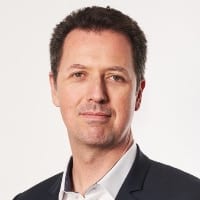
Bruno Sarda is a leader in the transition to a sustainable economy. As President of CDP North America, Bruno guides the organization’s engagement with thousands of companies, investors and governments across the U.S. and Canada to drive environmental disclosure and ambitious action. Previously he served as Chief Sustainability Officer for NRG, a leading integrated power company, and has also worked at Dell and Charles Schwab. Bruno is a faculty member and Senior Sustainability Scholar at Arizona State University.
